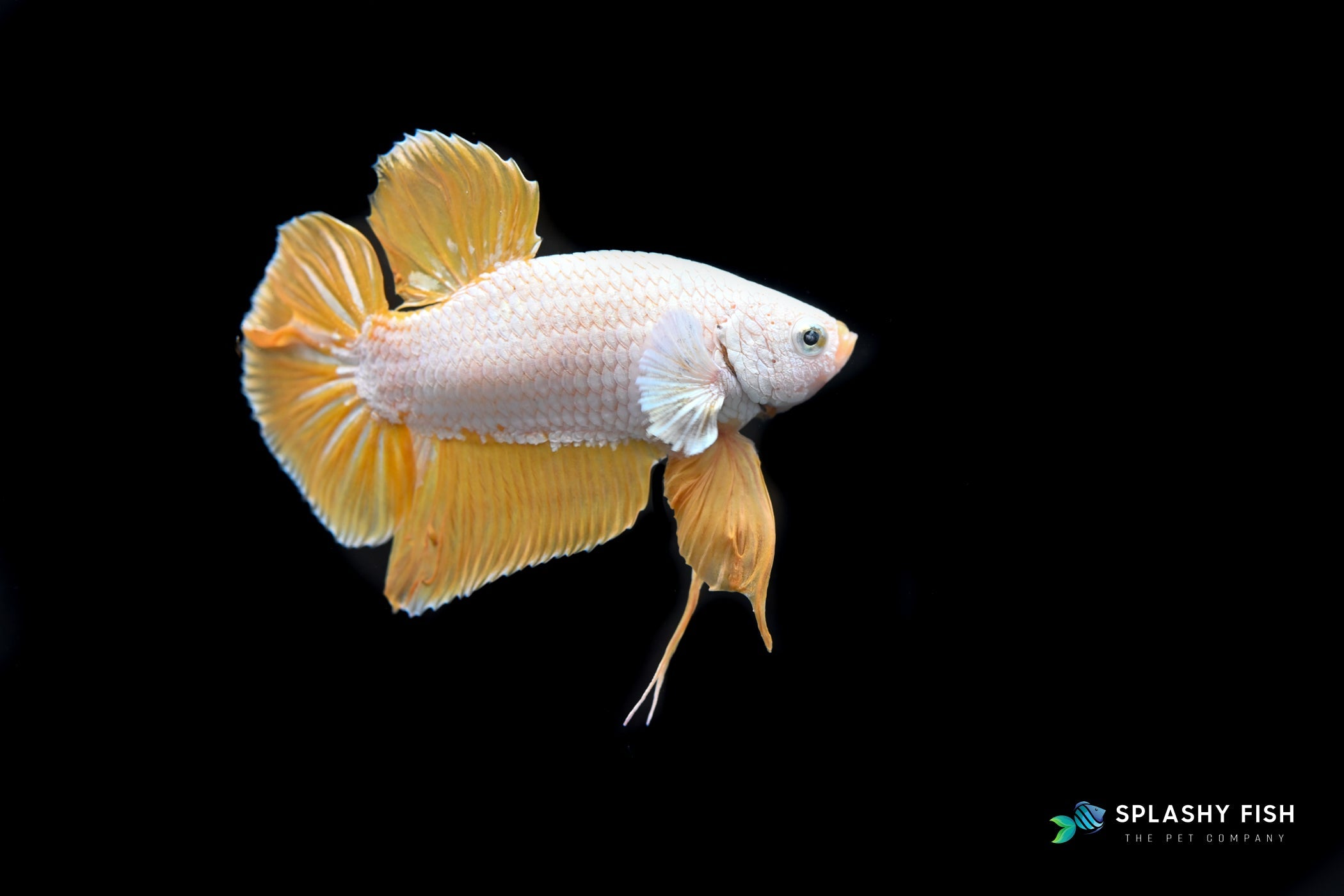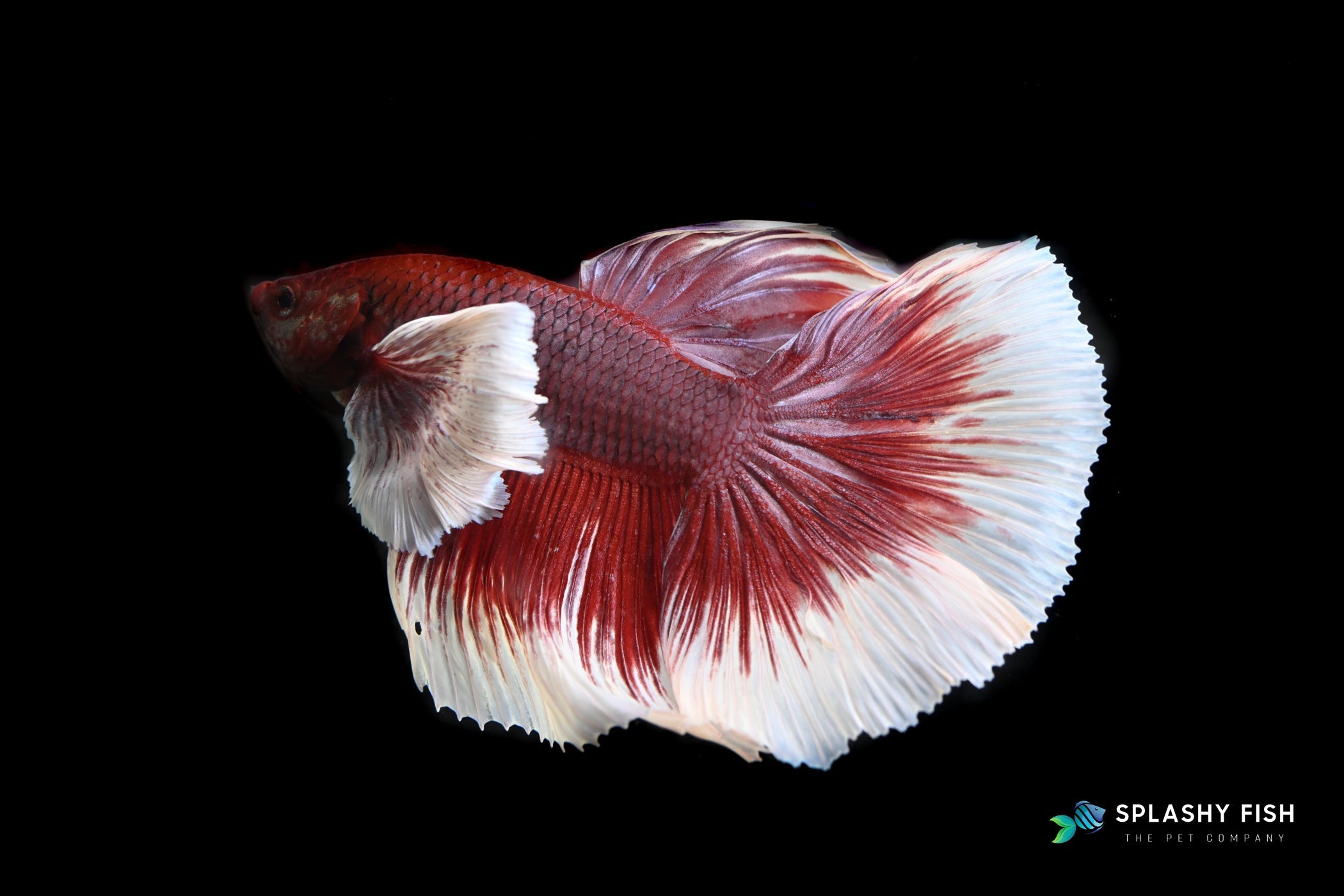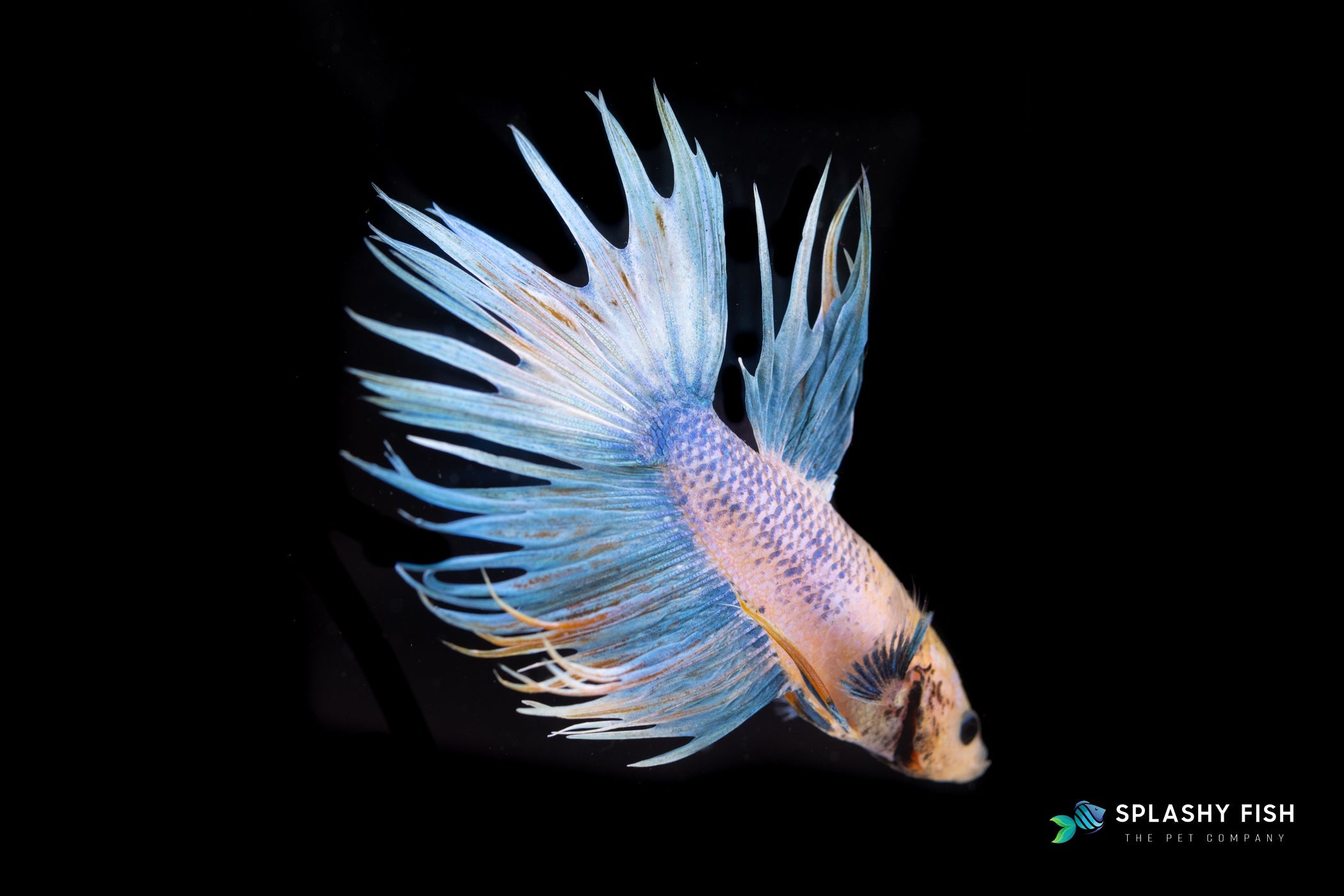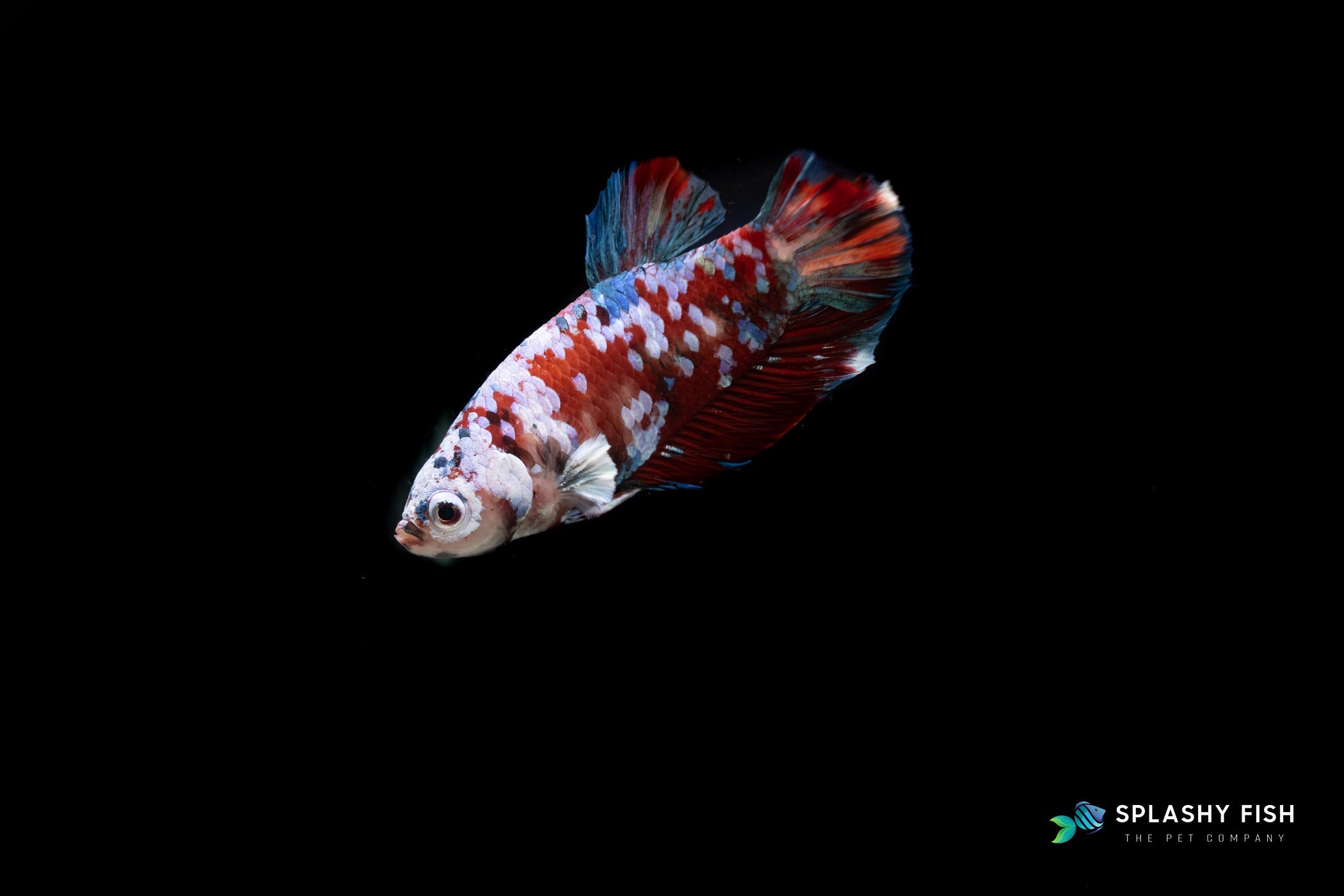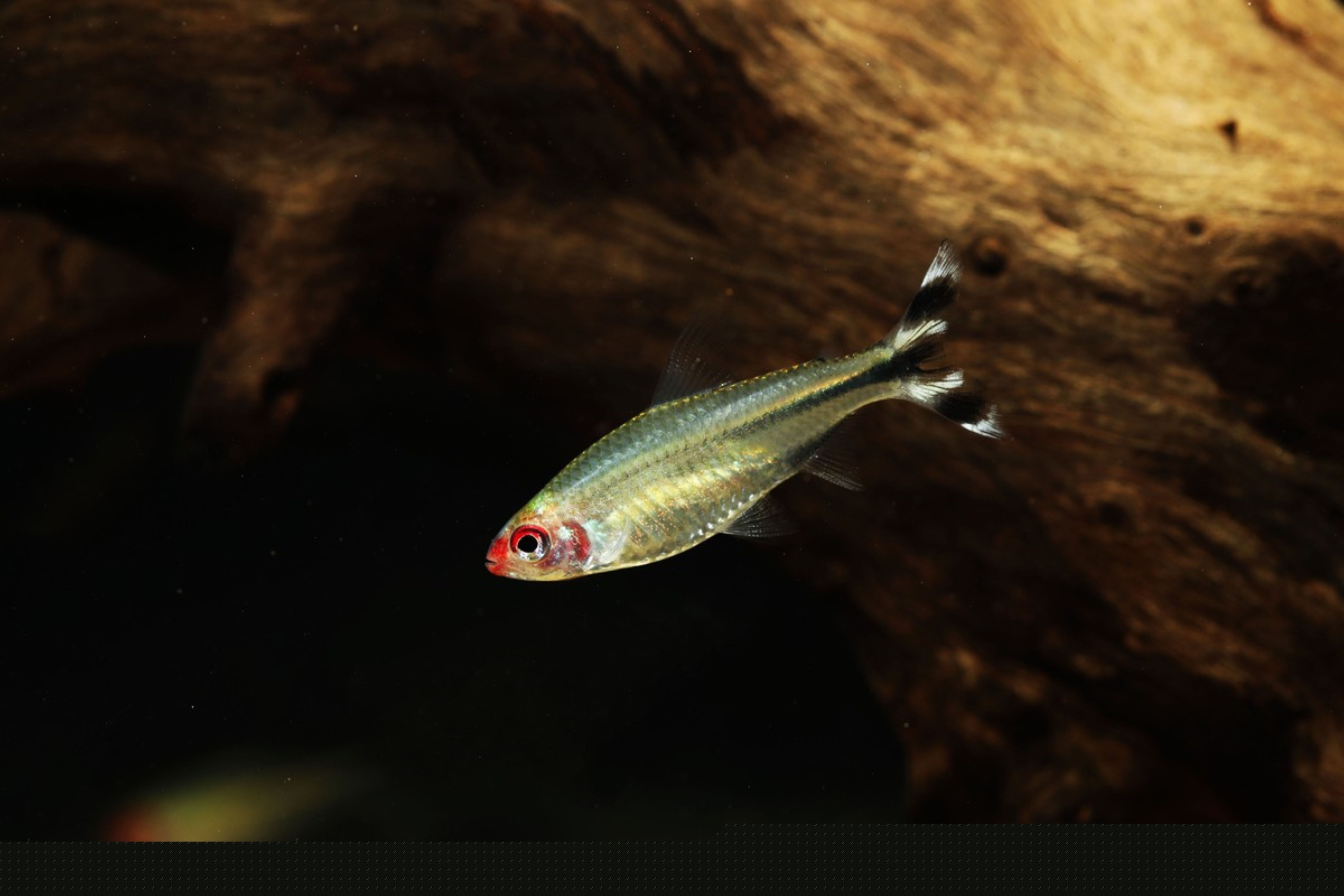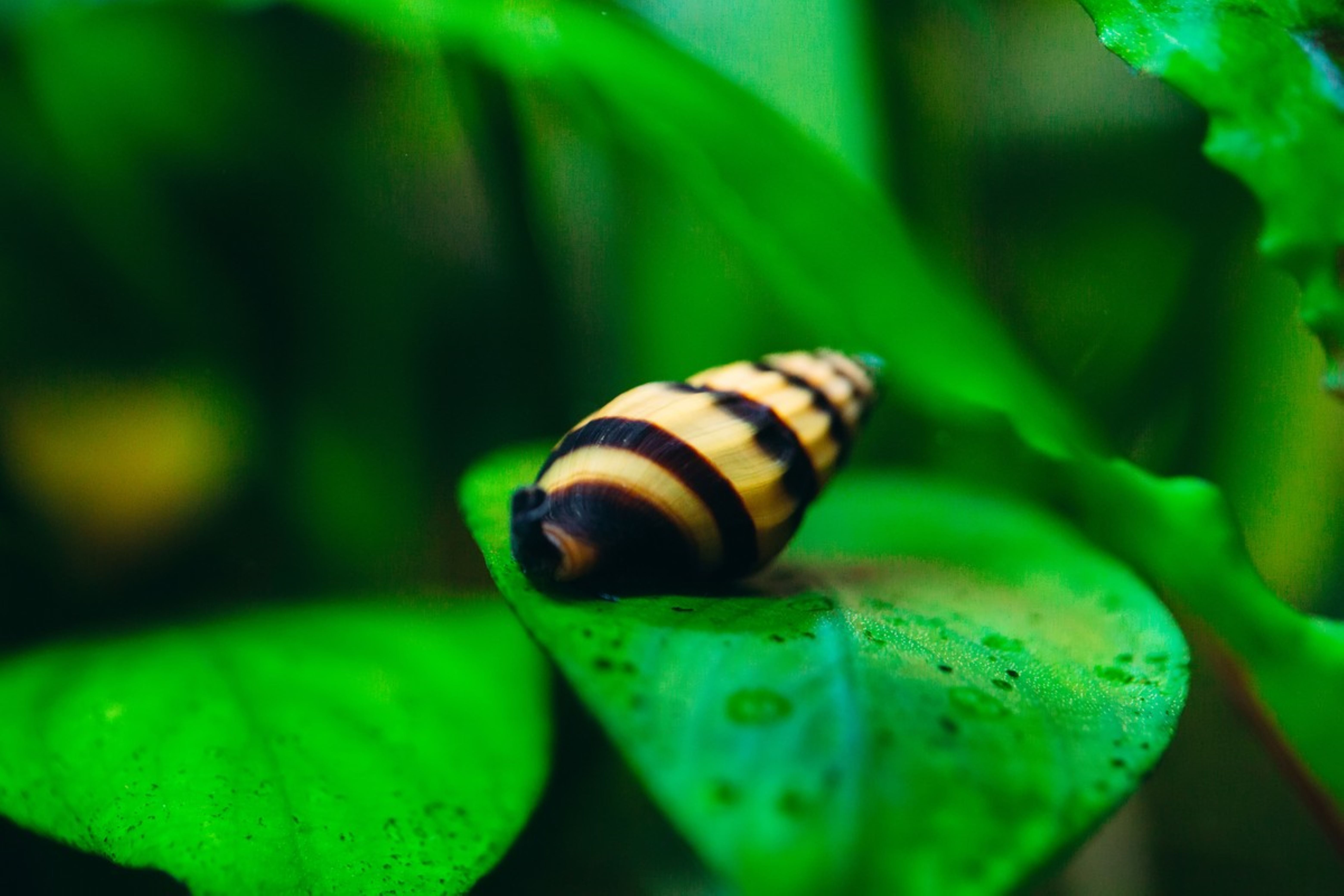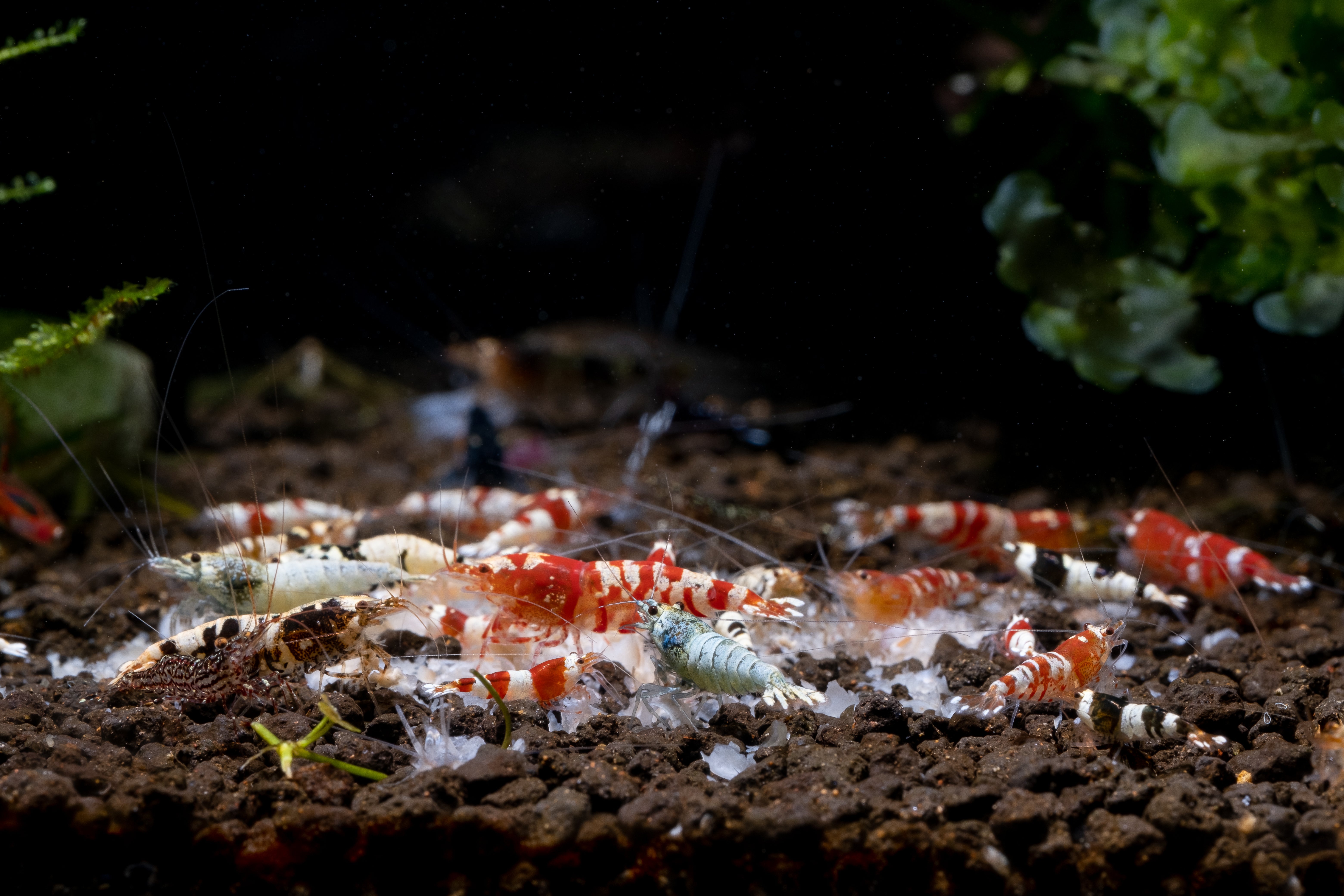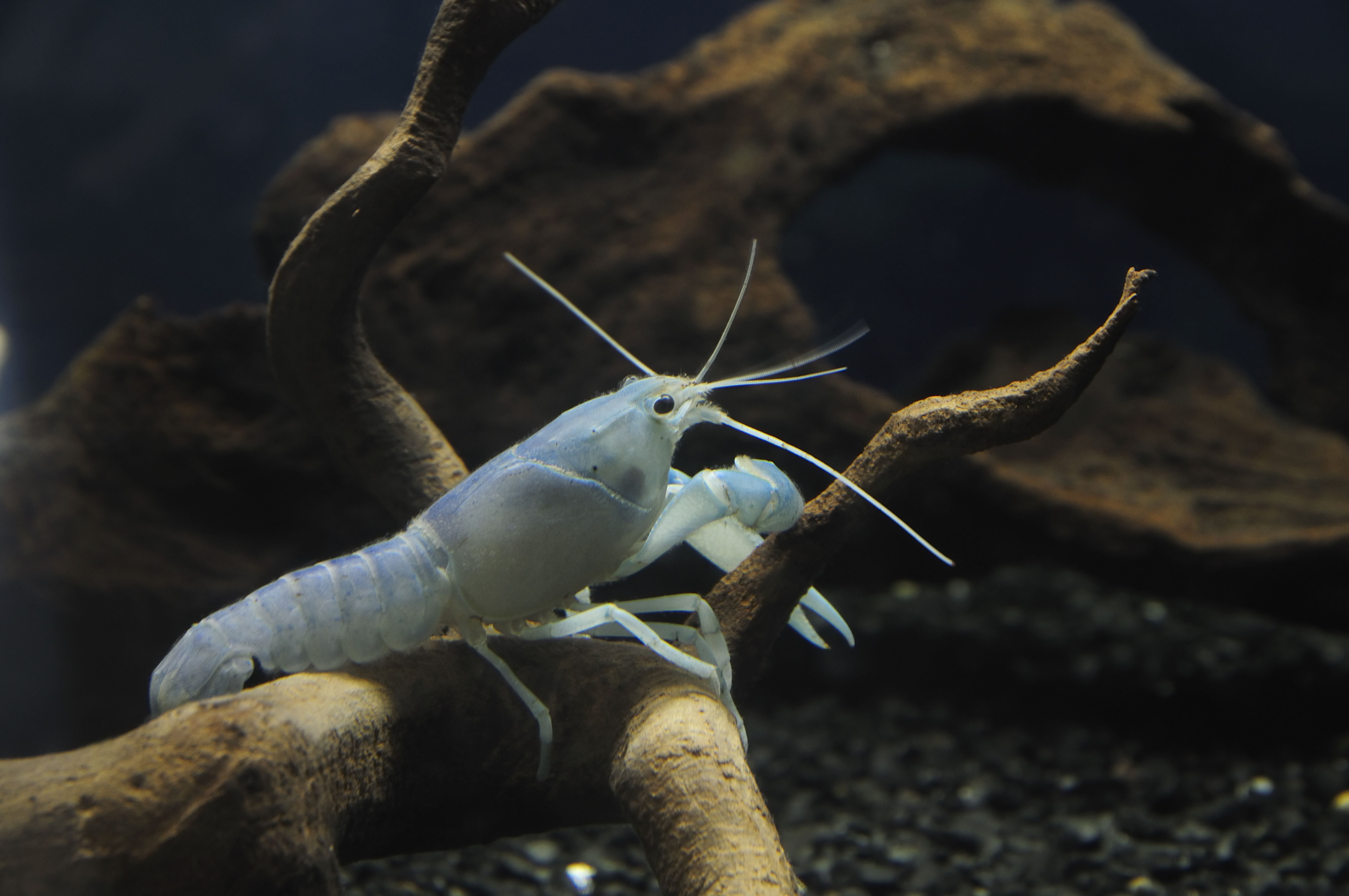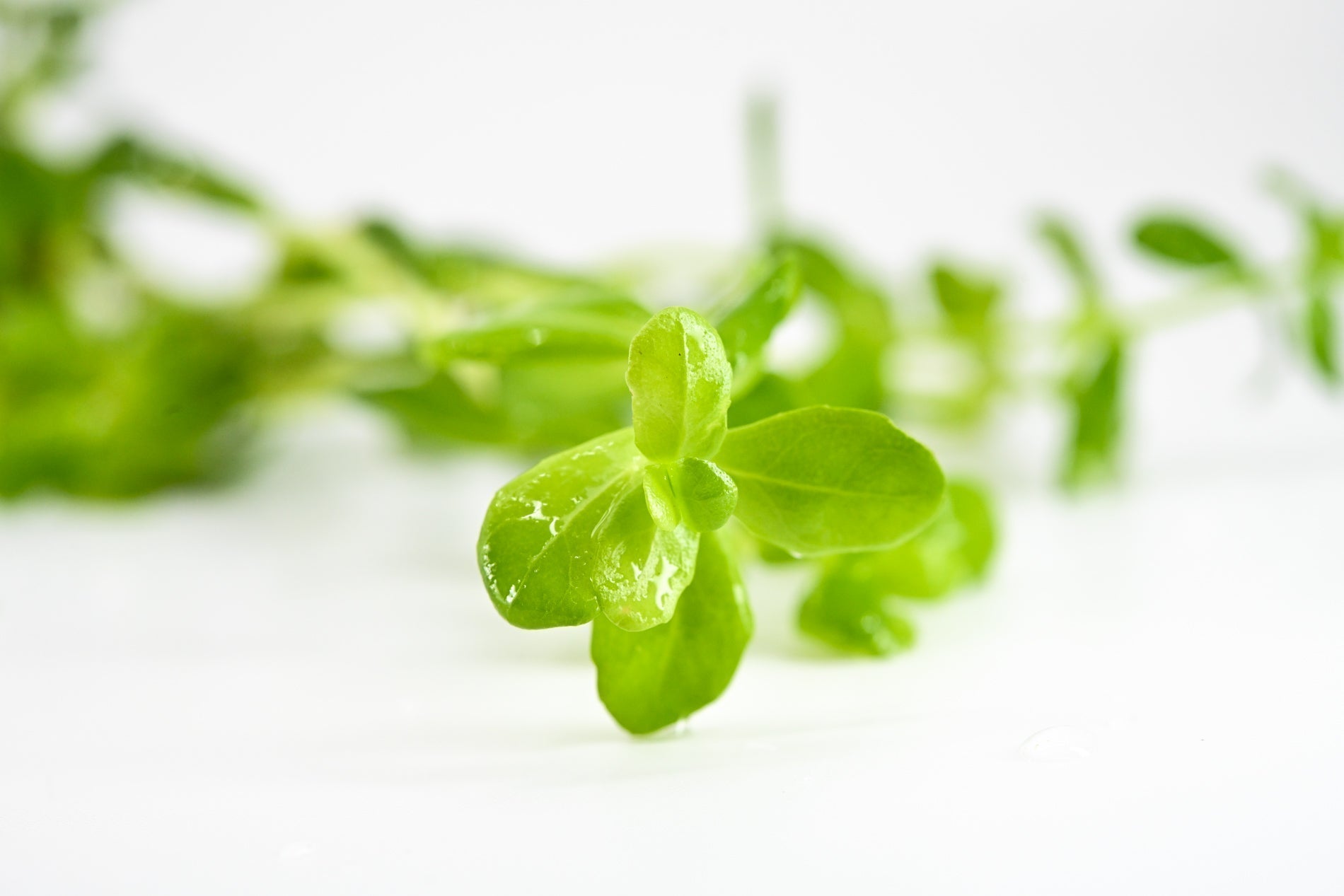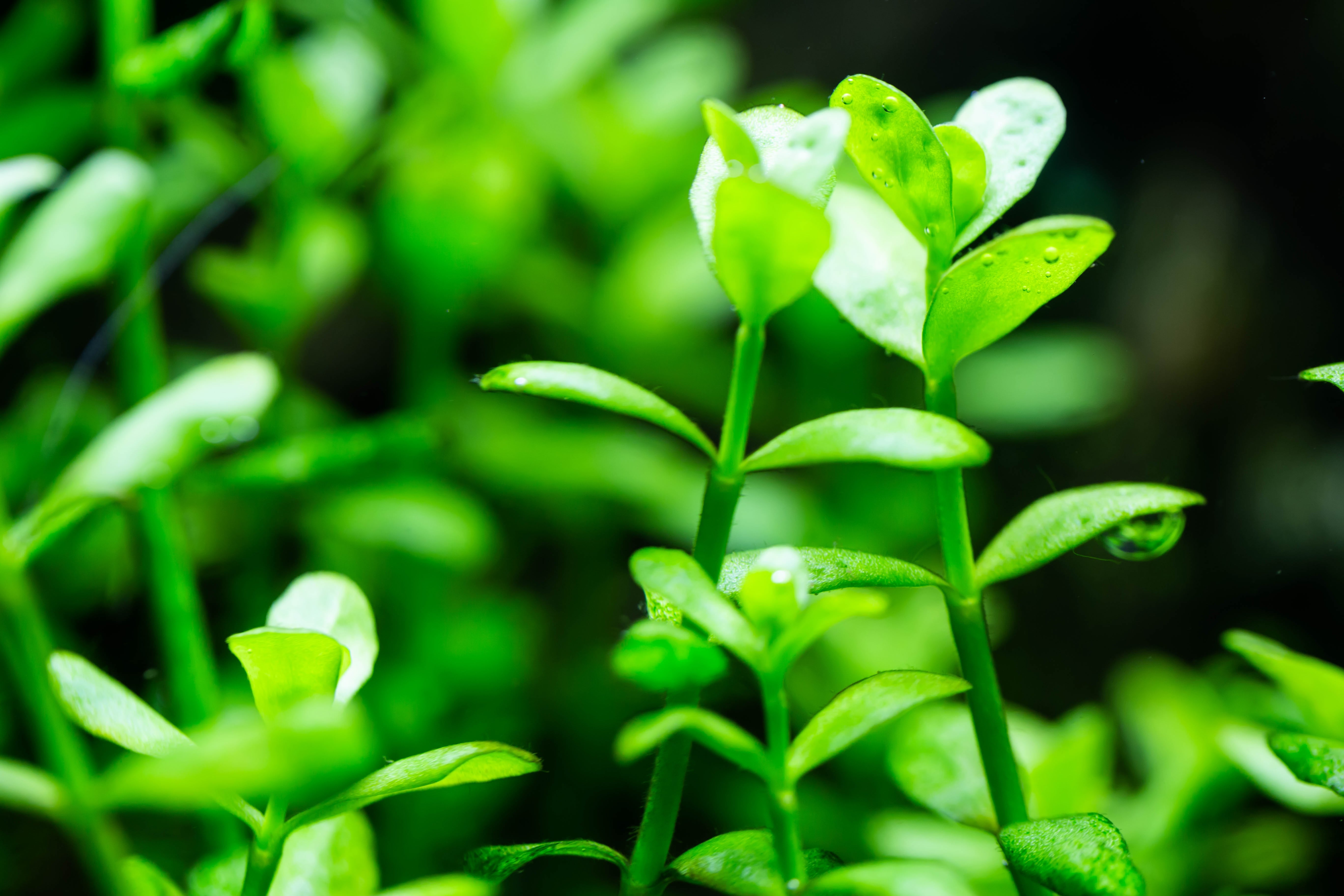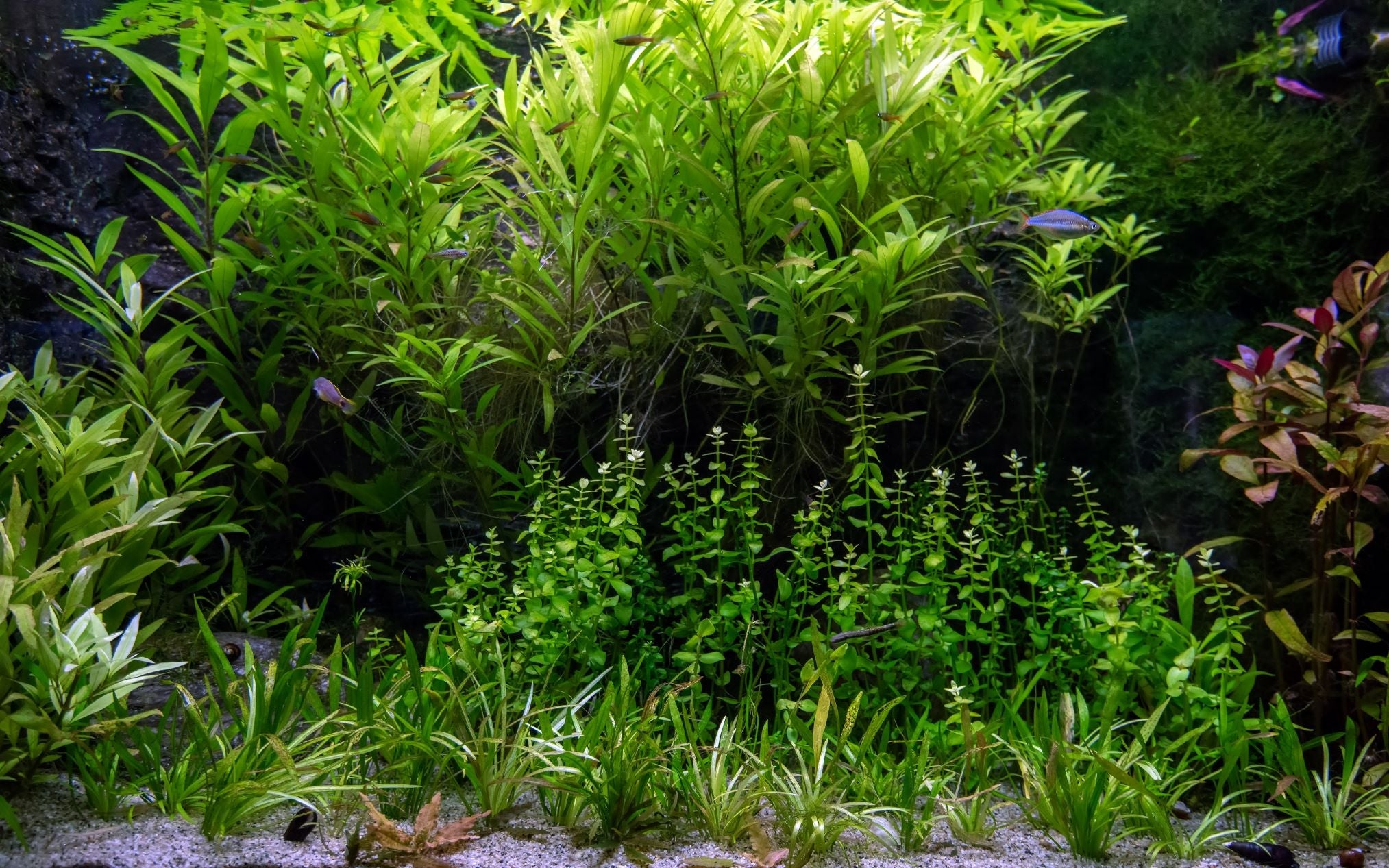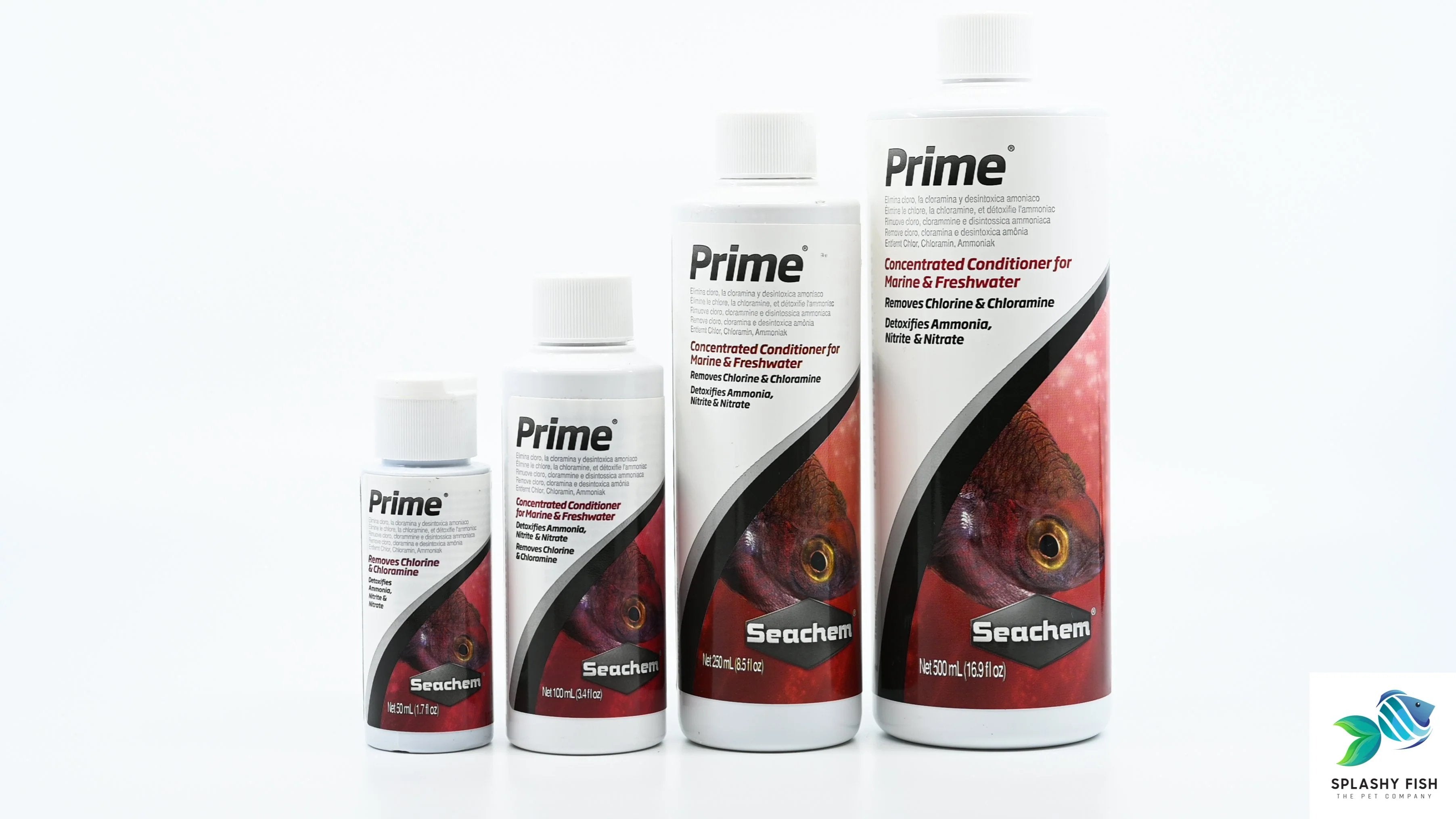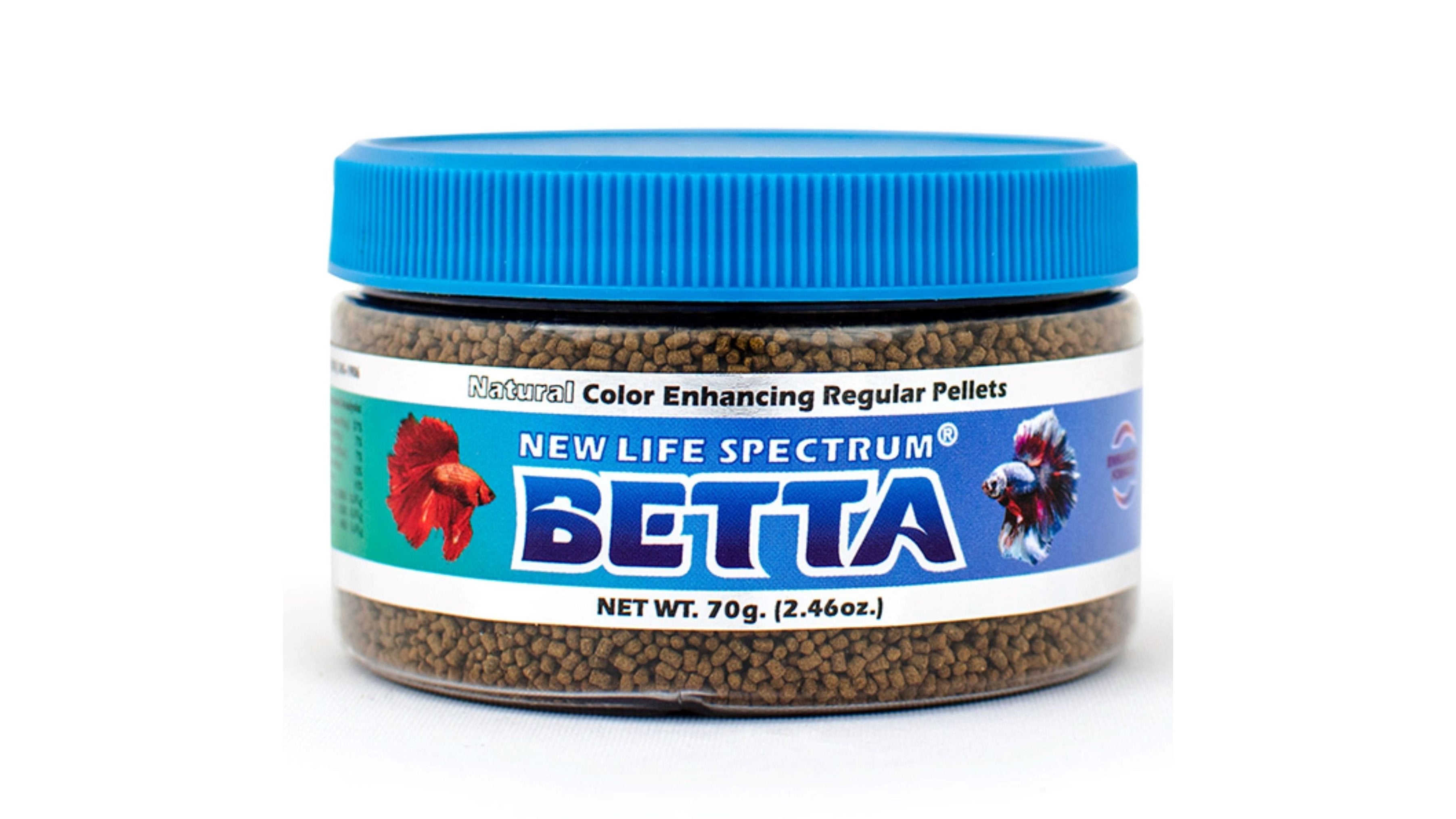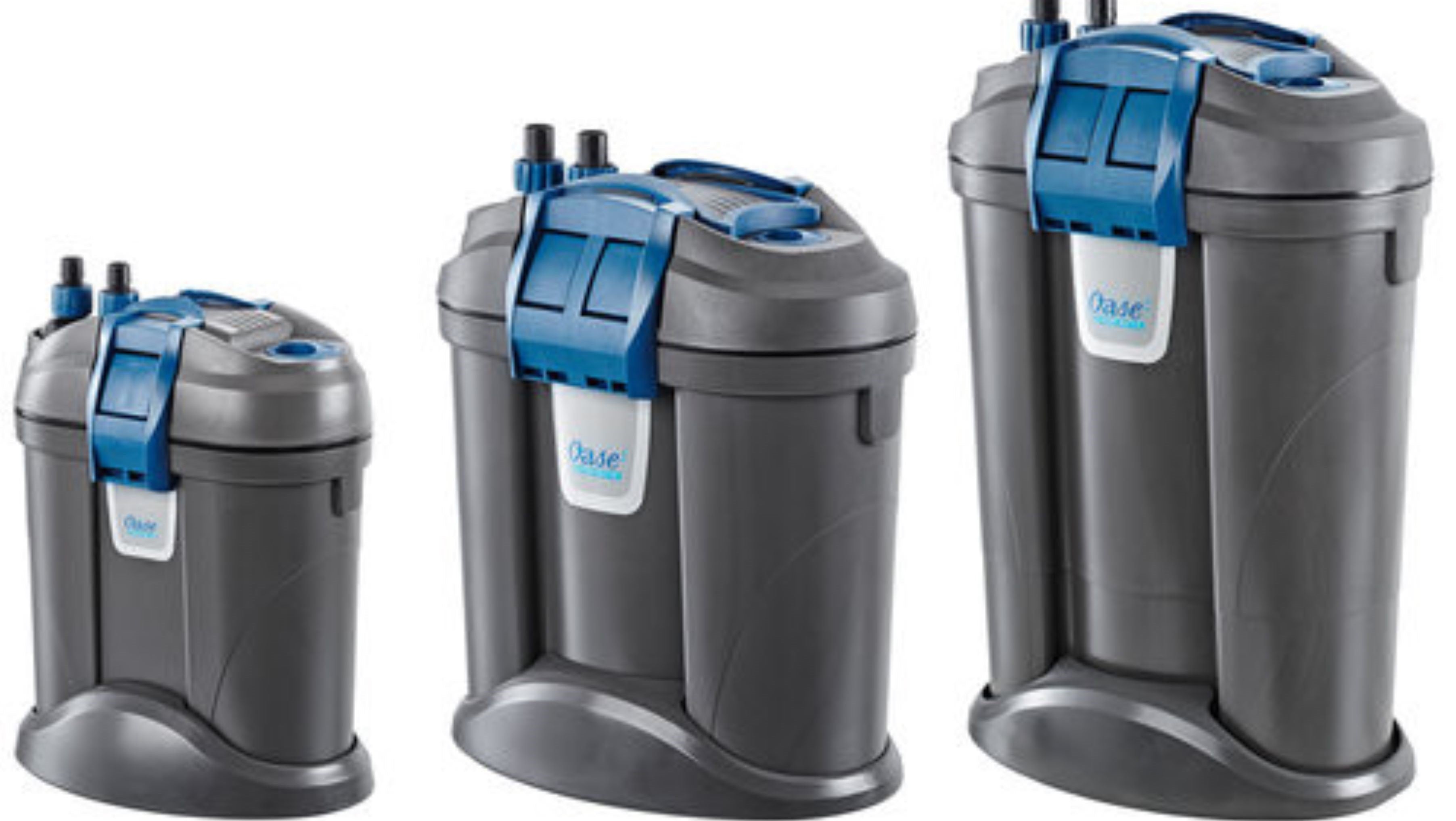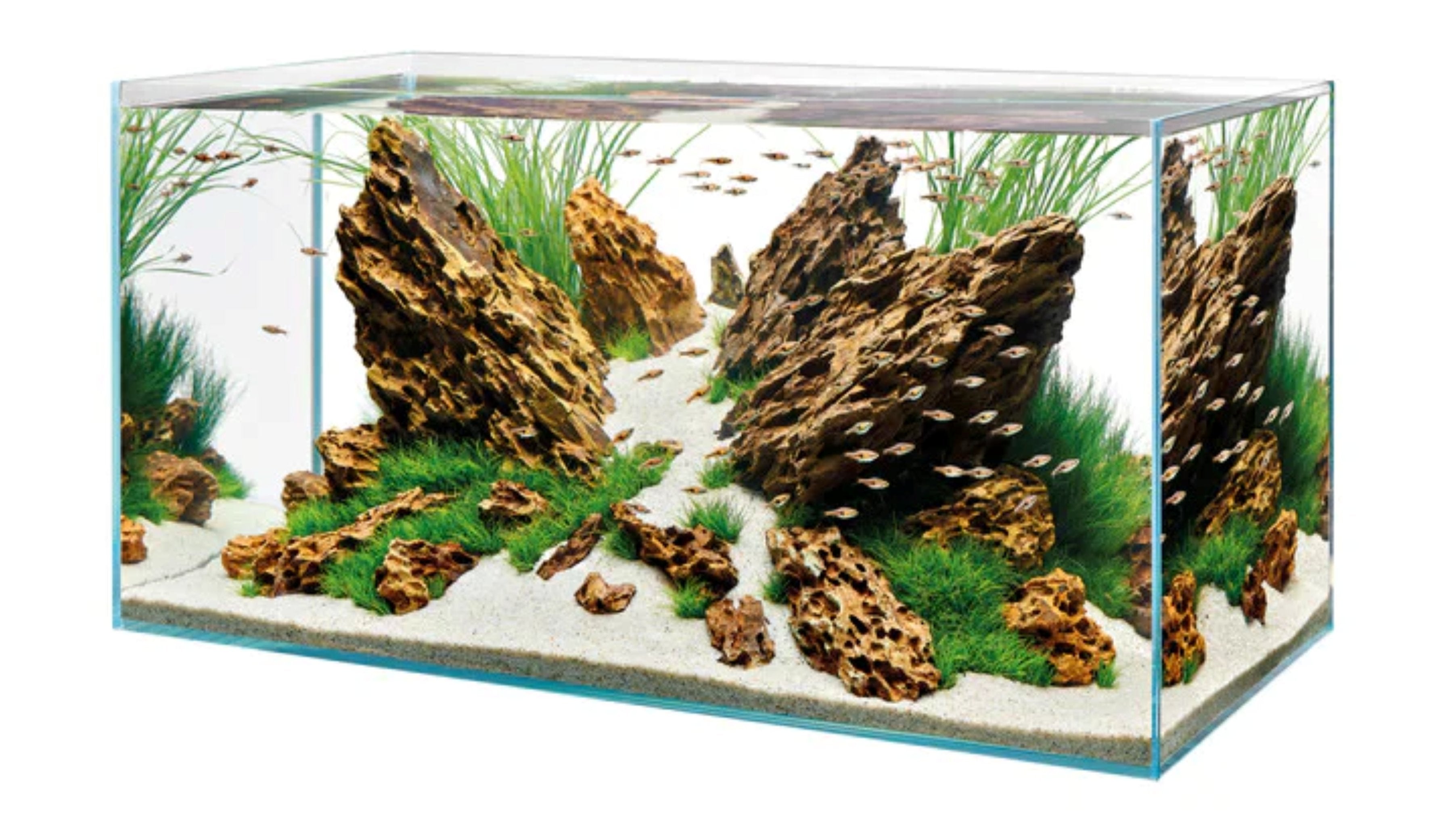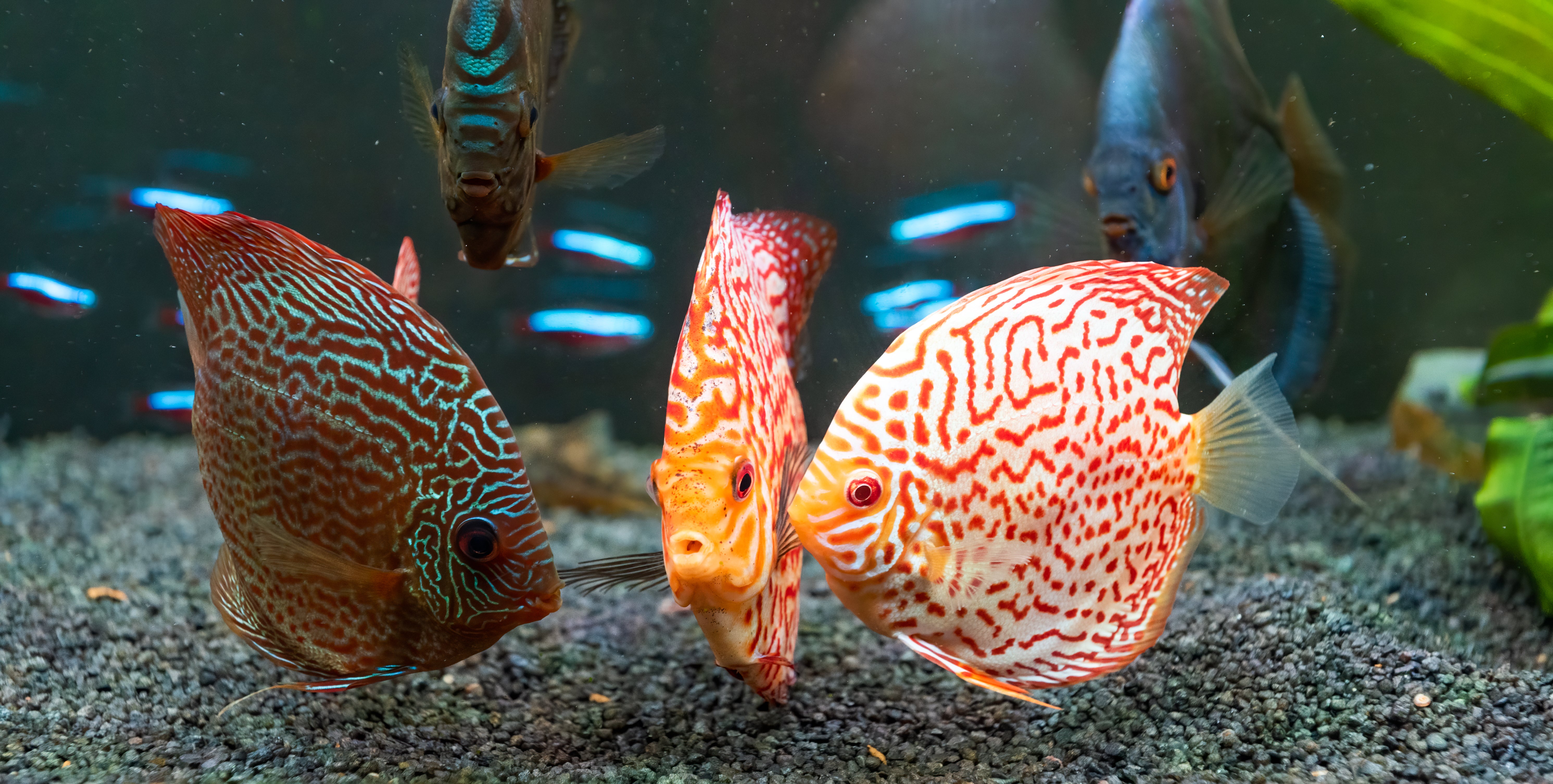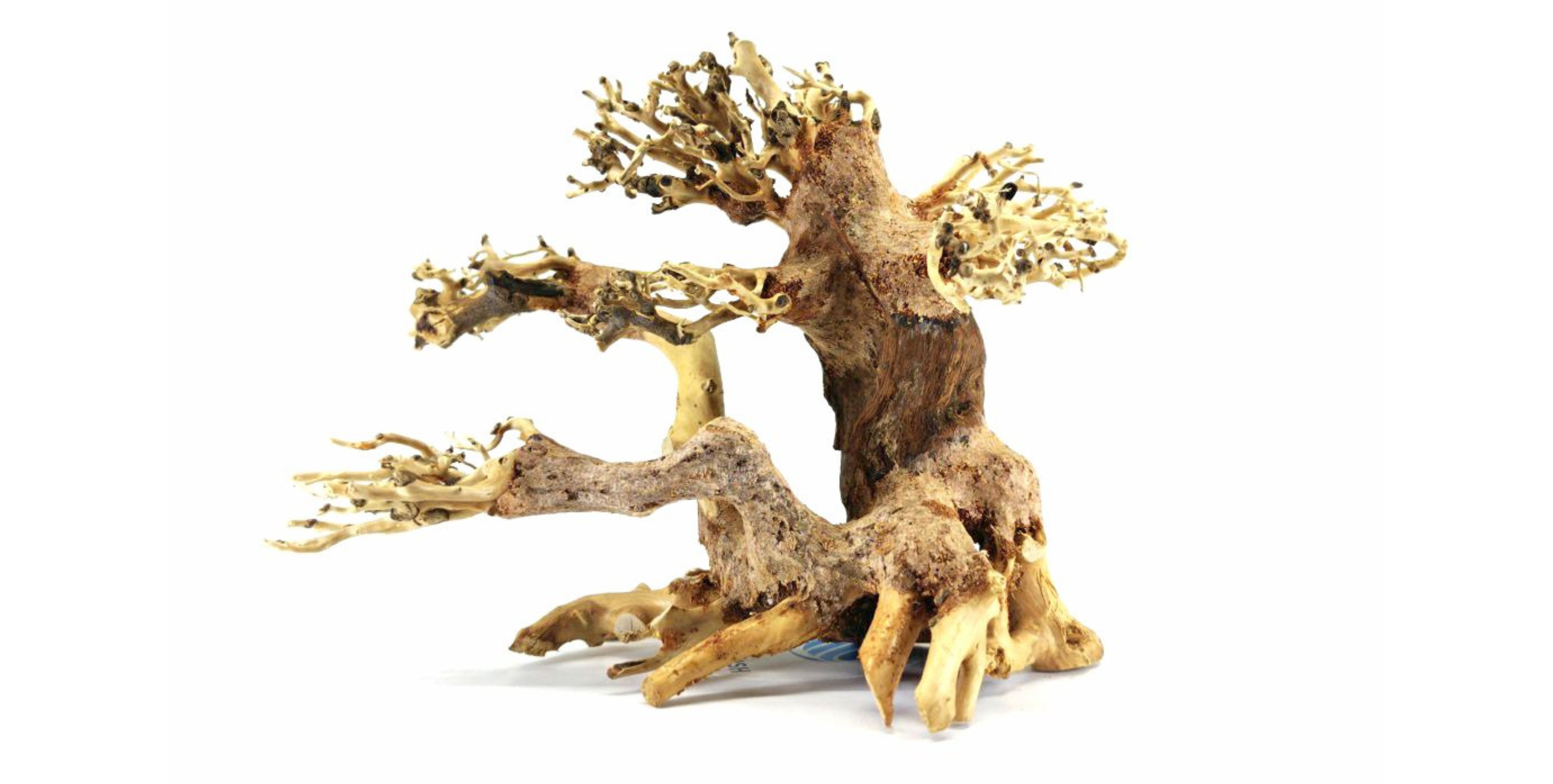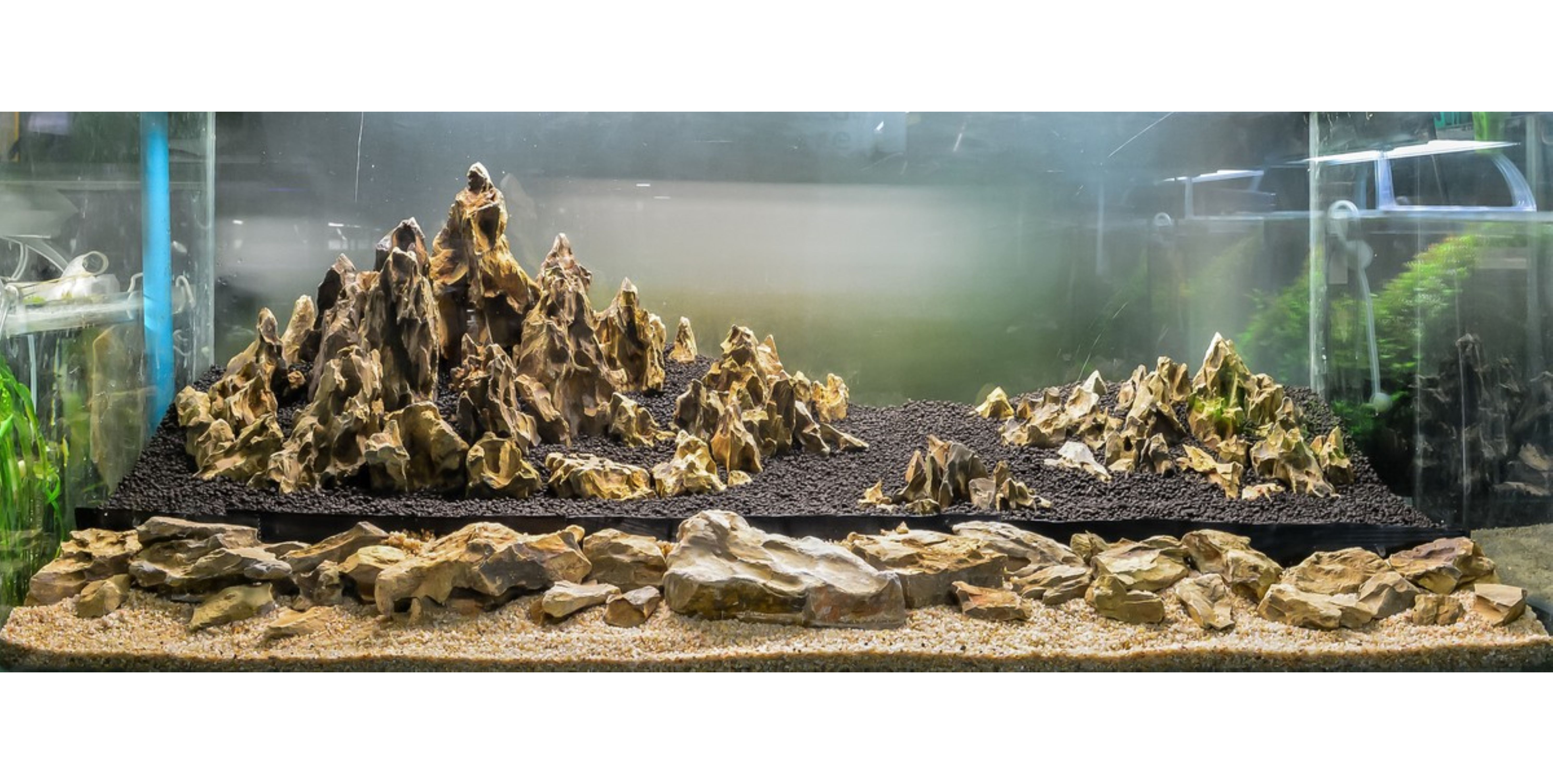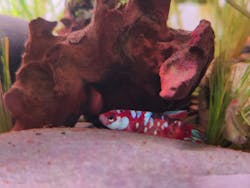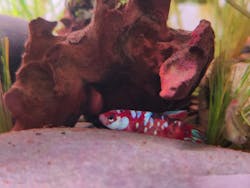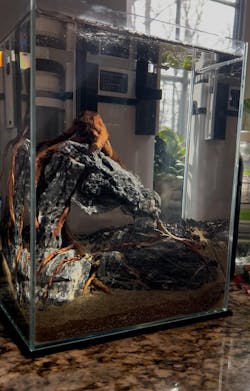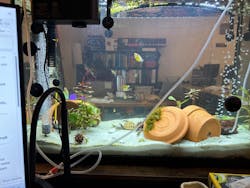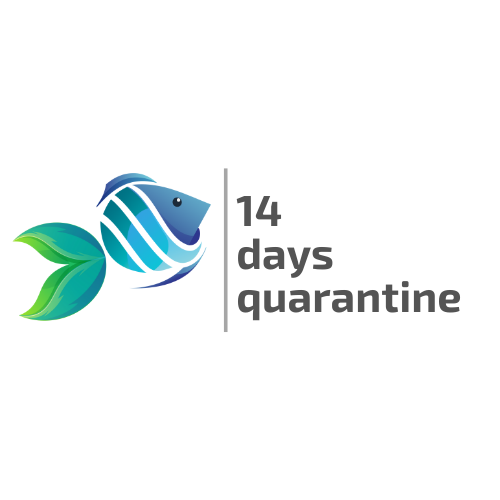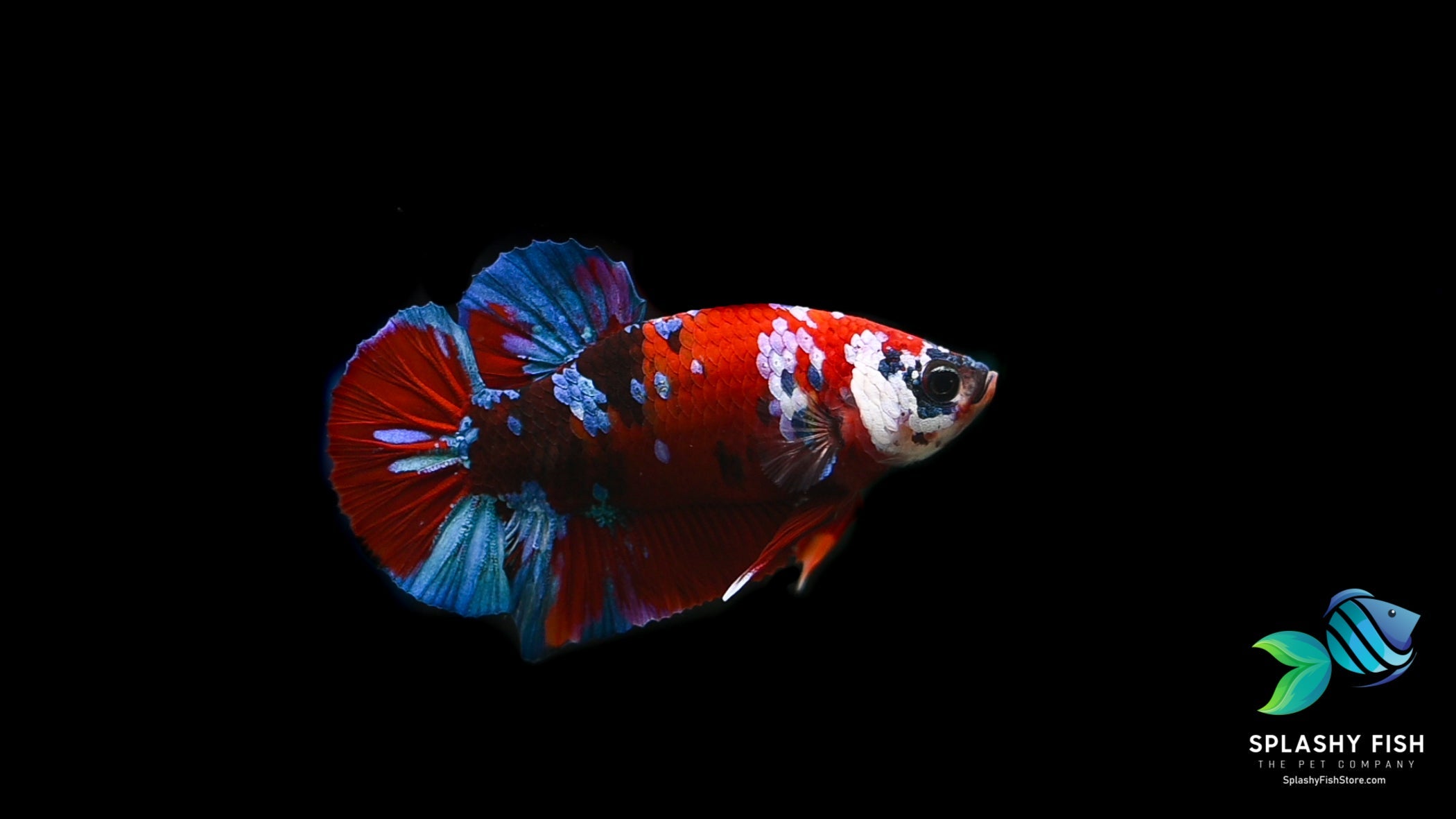
Giant Betta
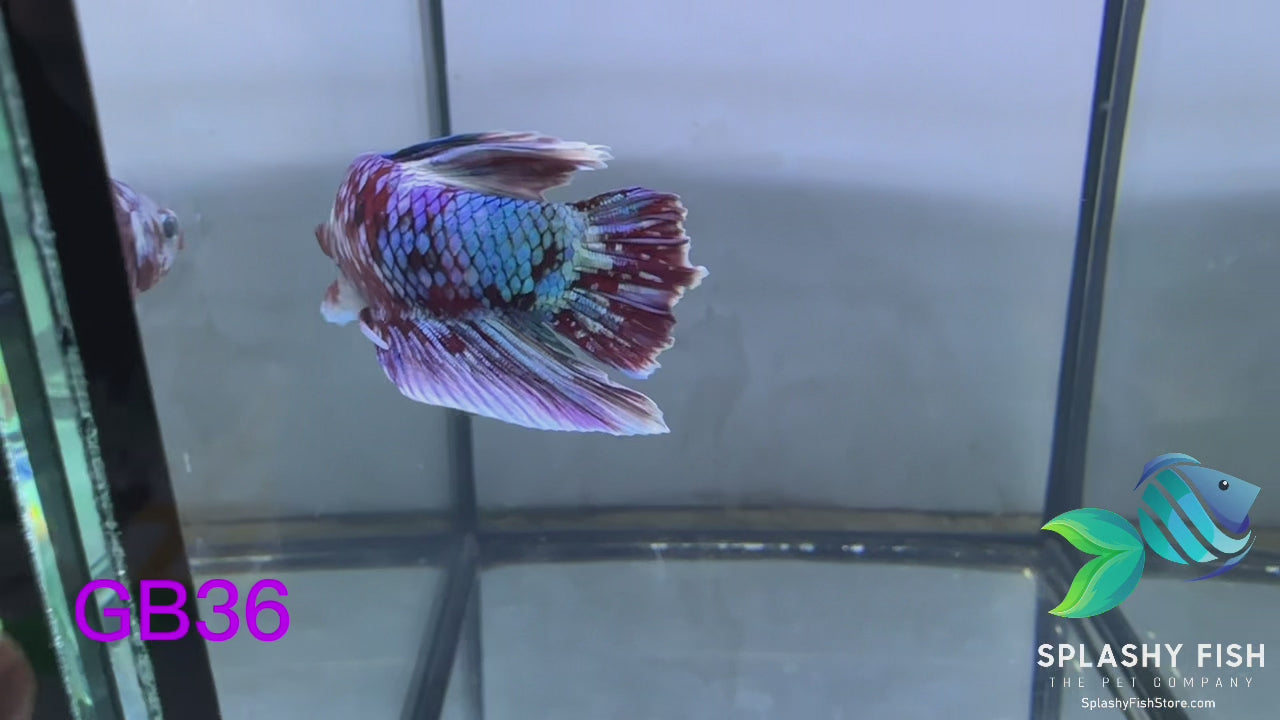
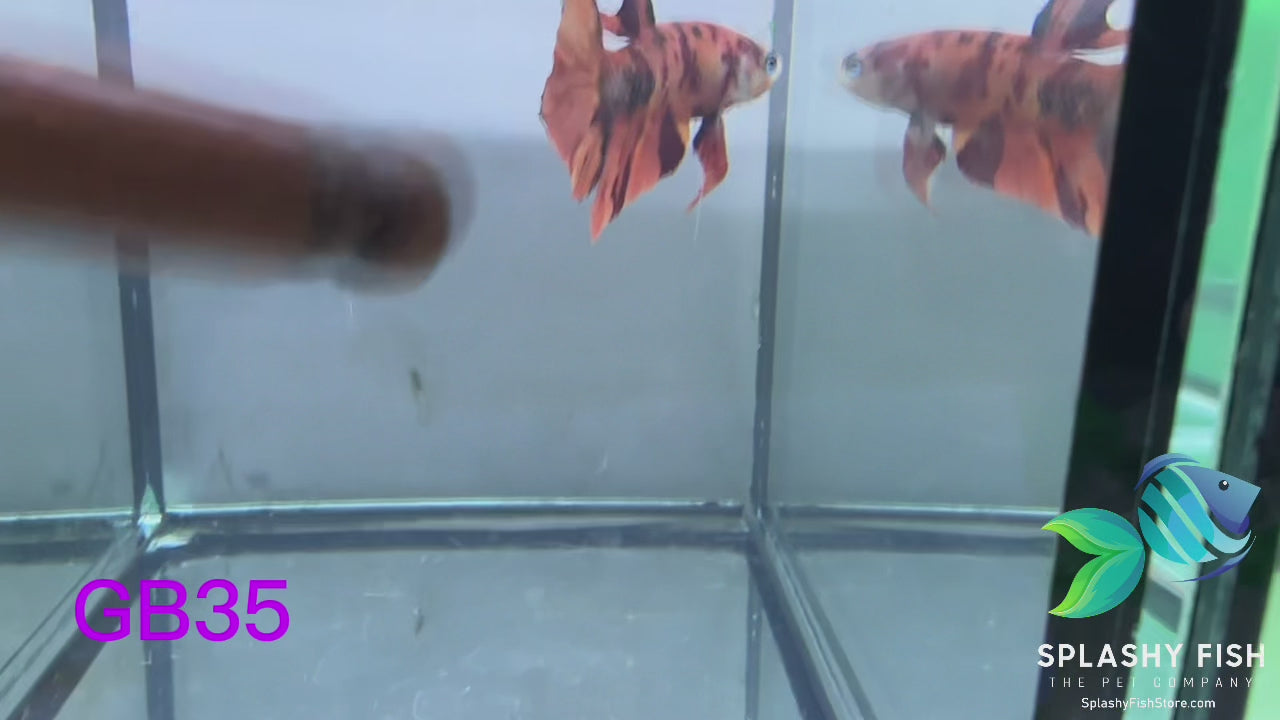
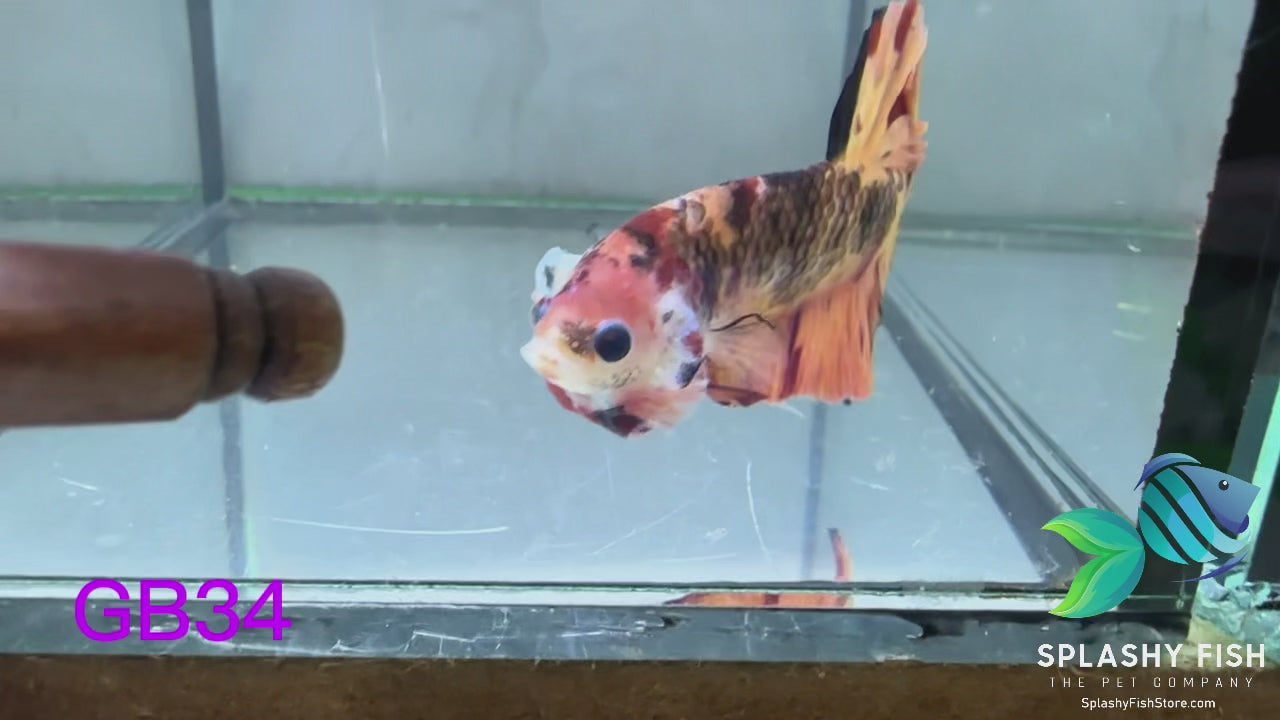
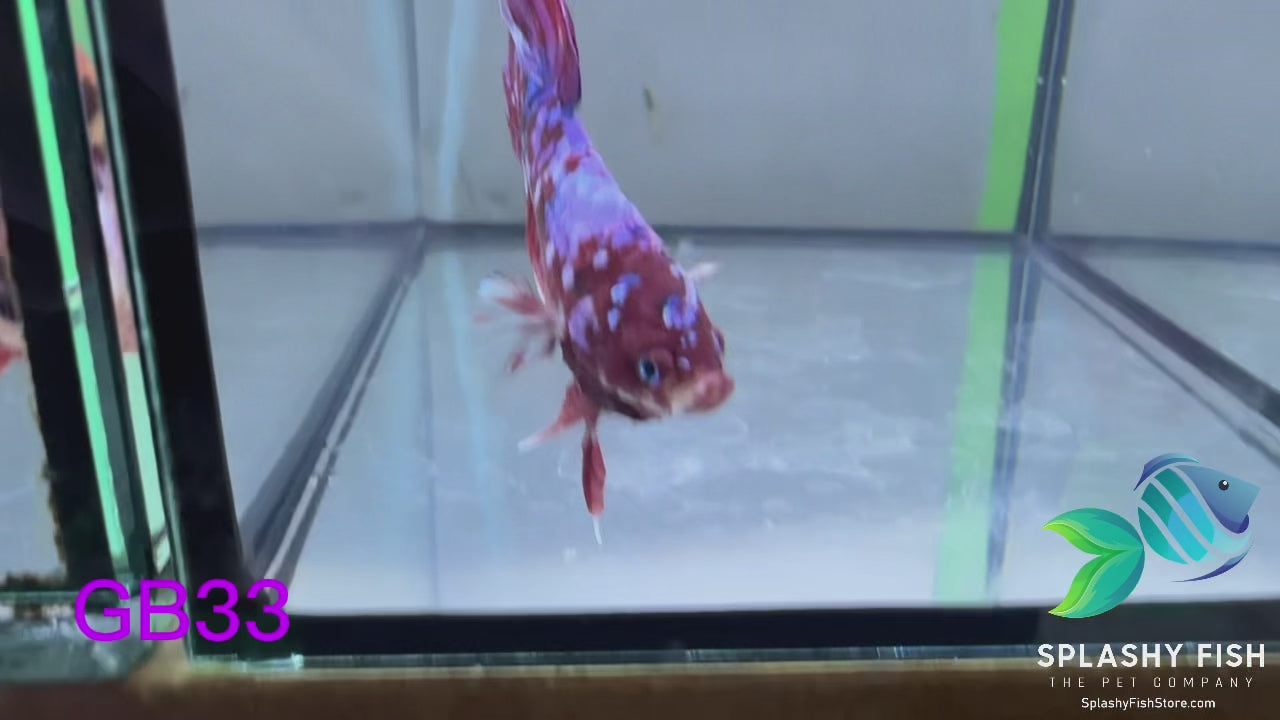
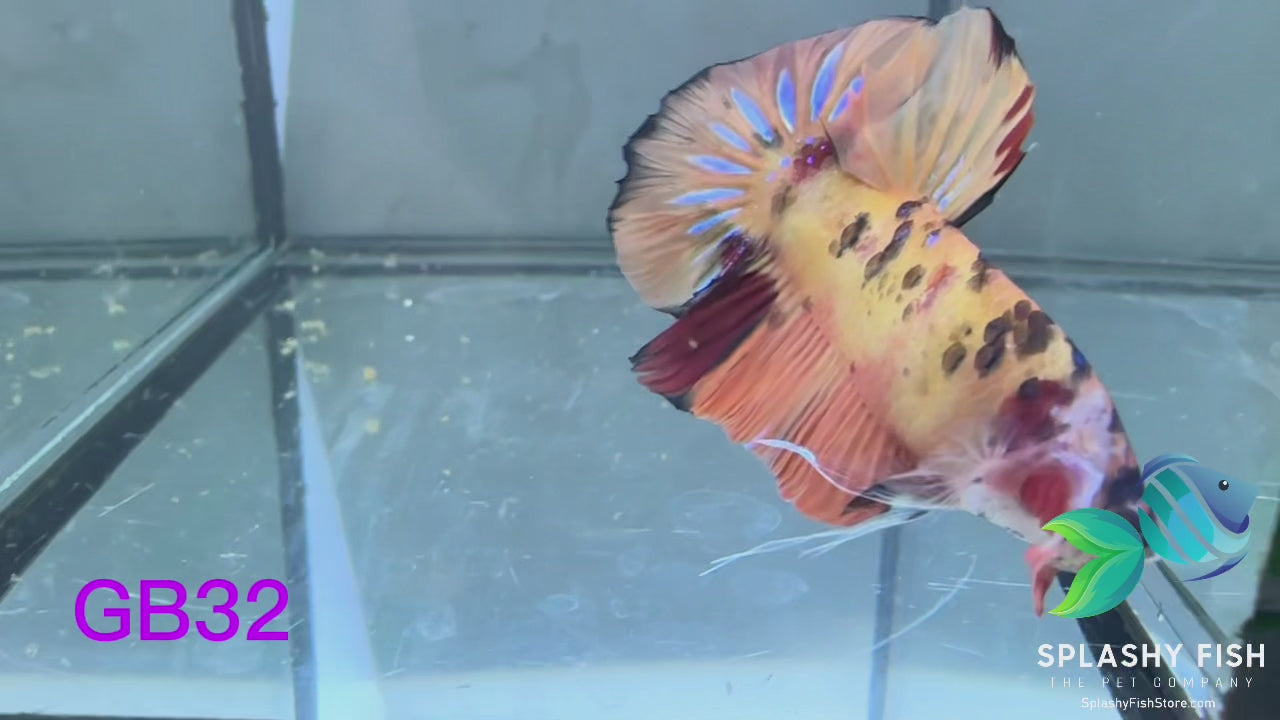
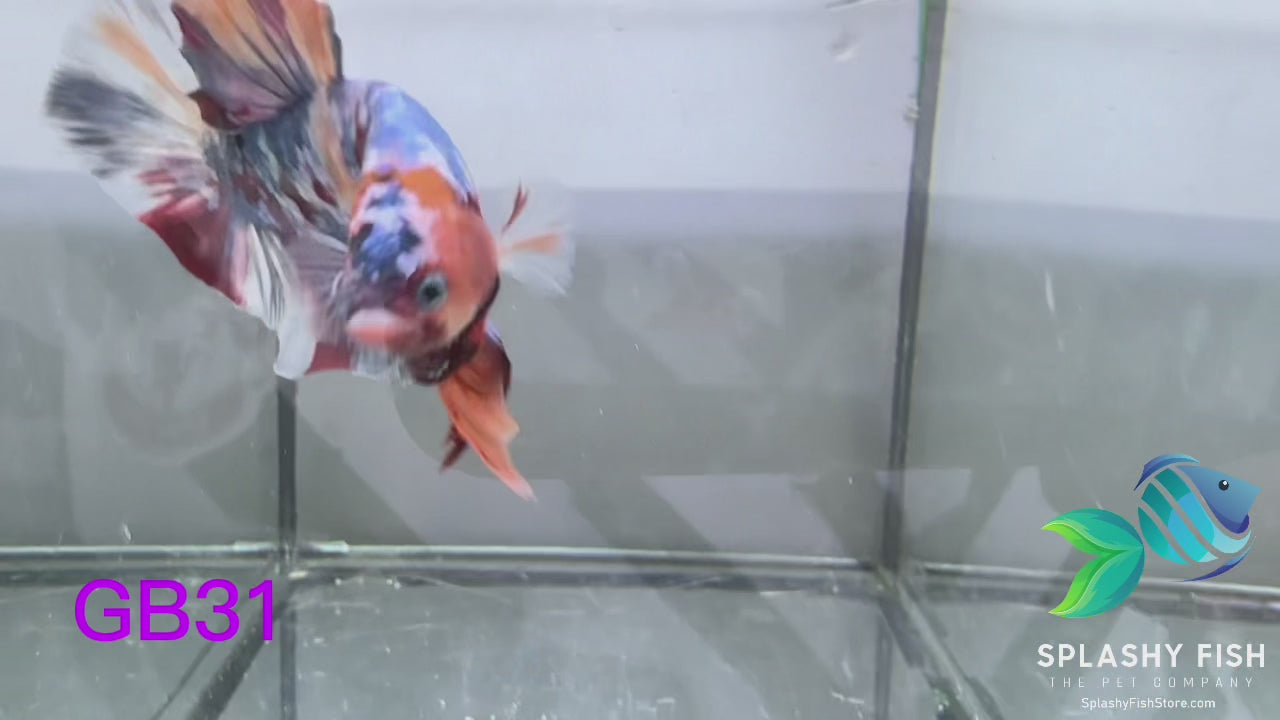
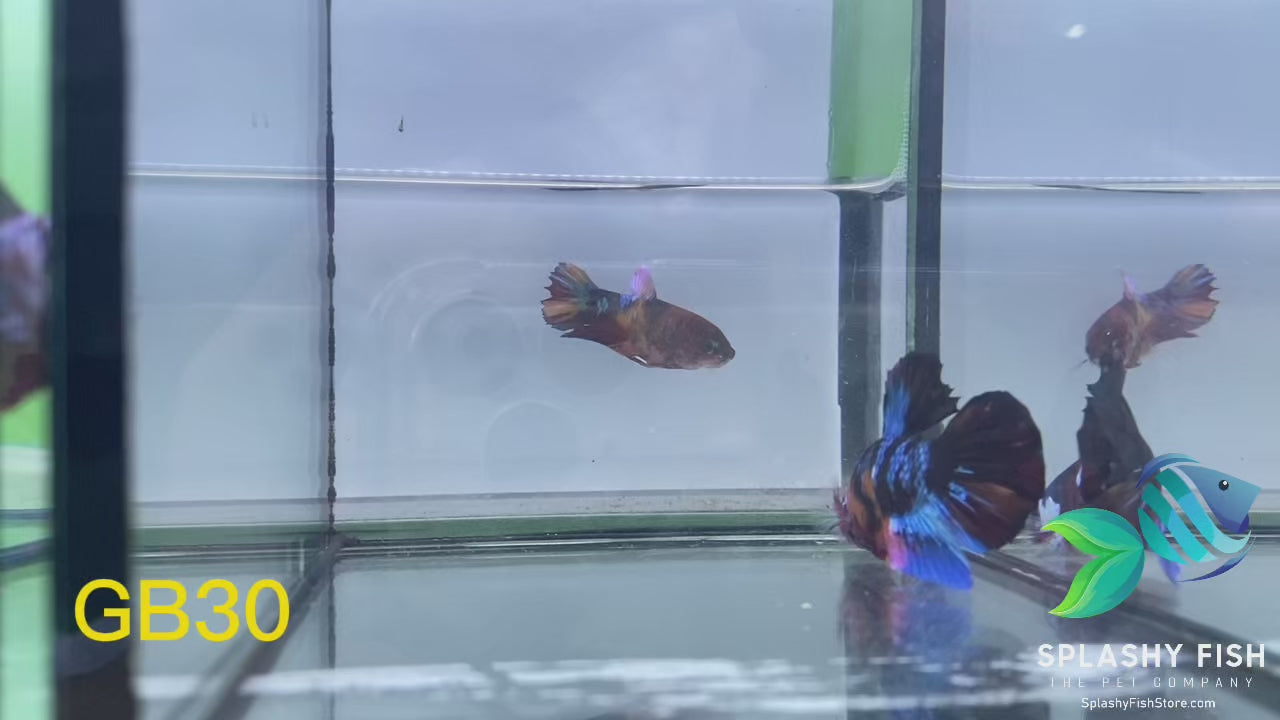
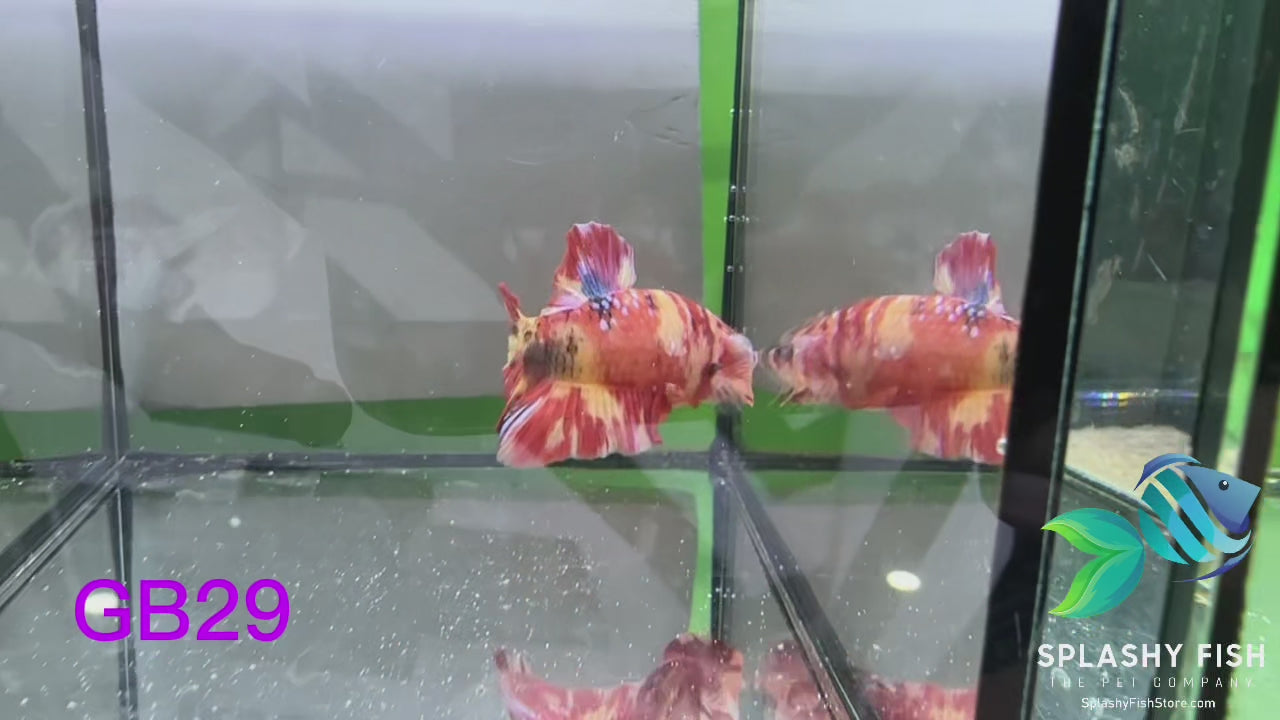
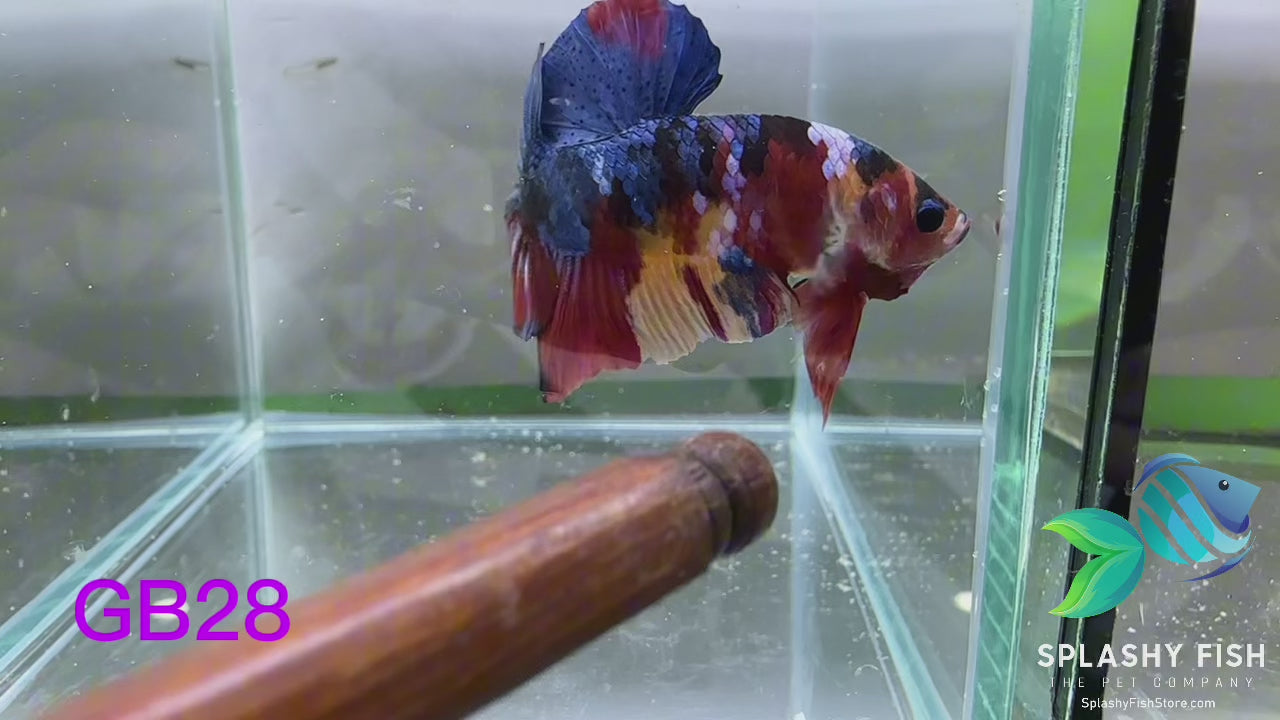
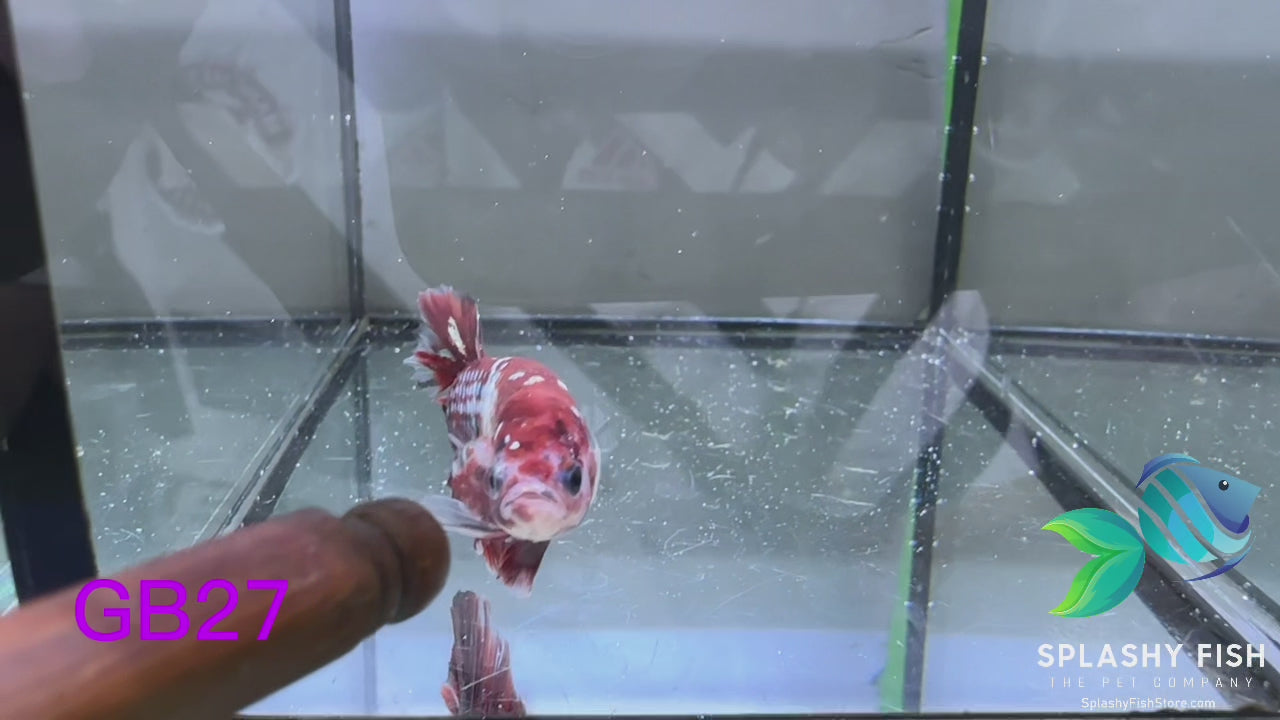
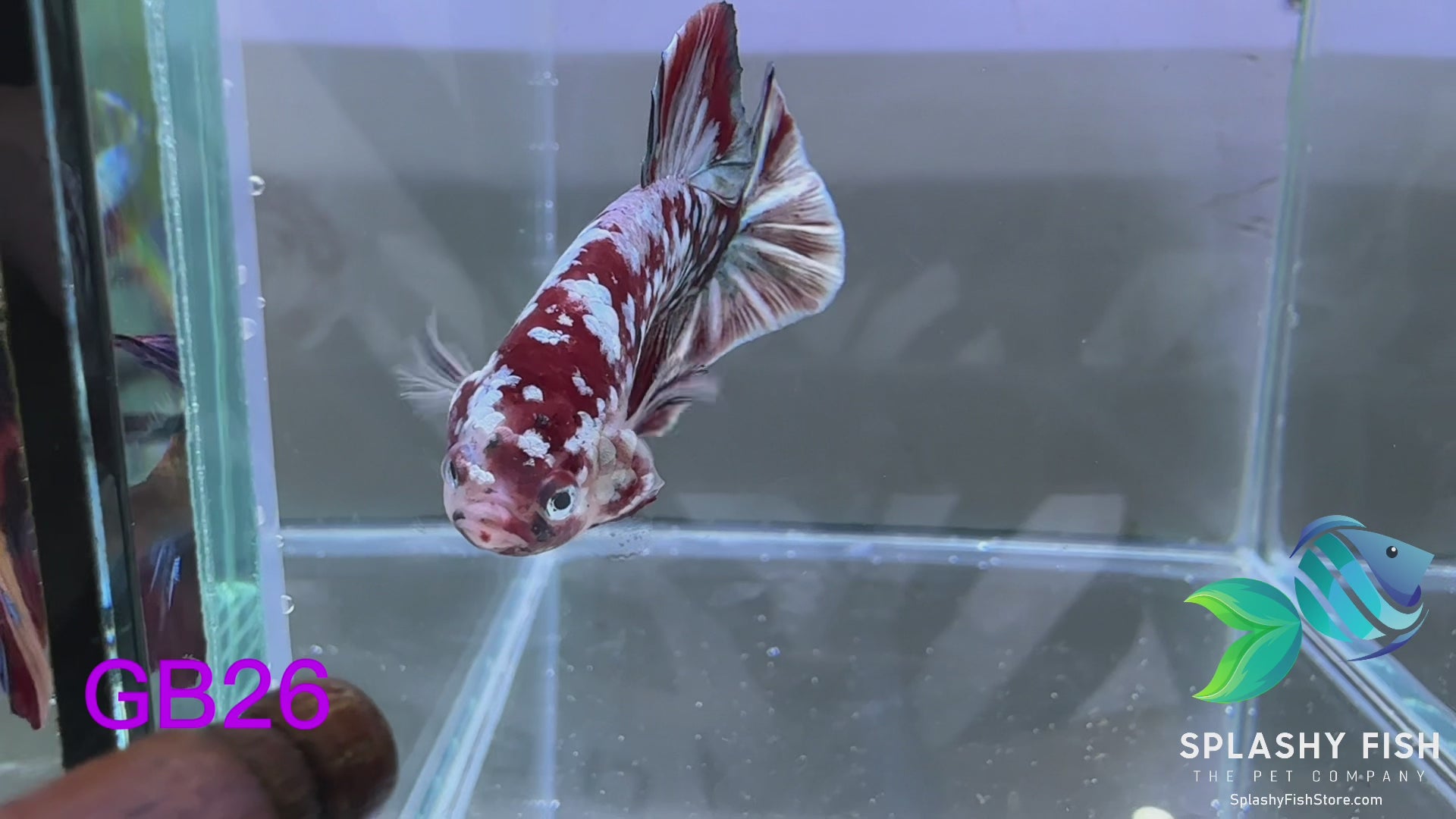
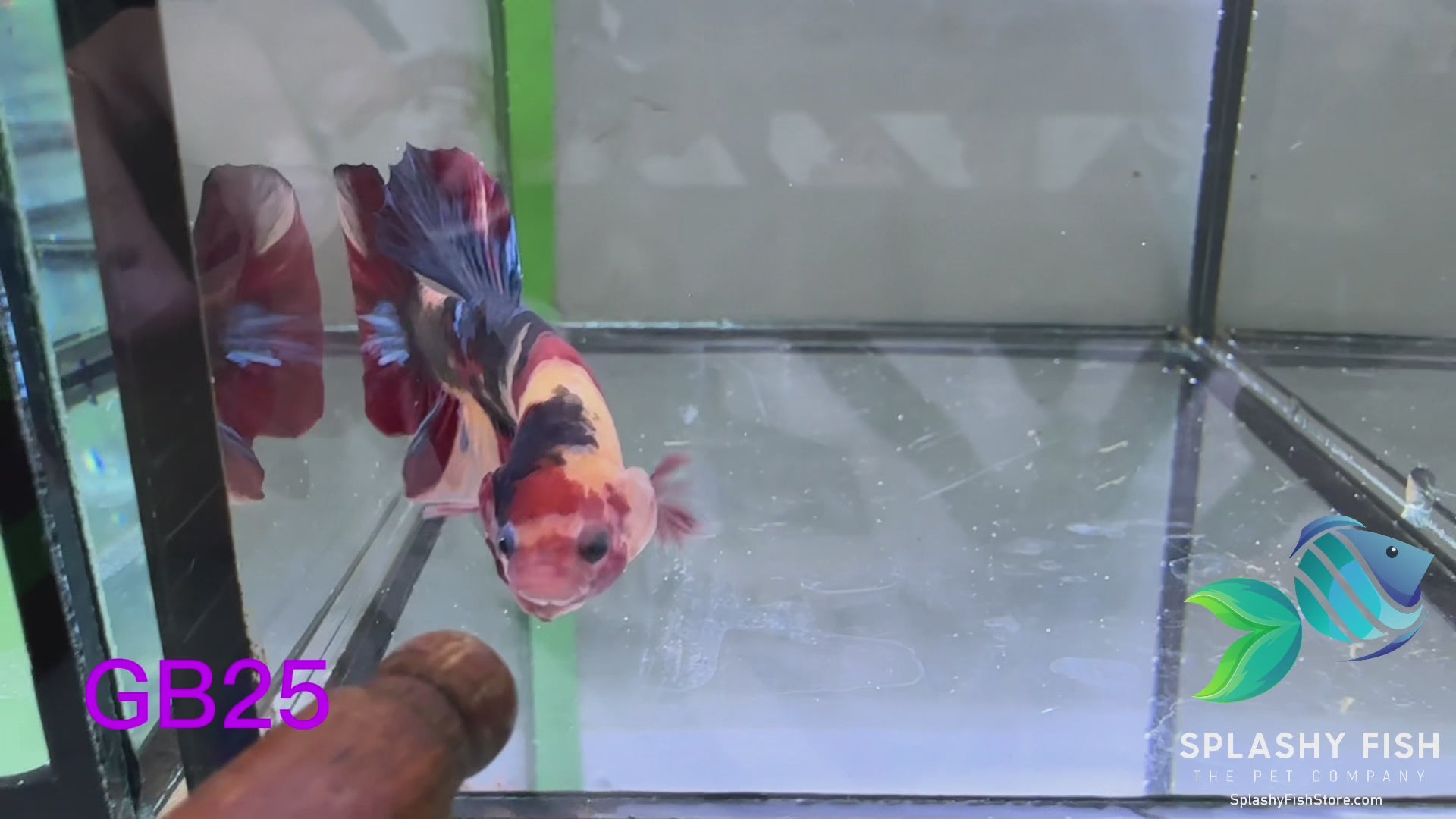
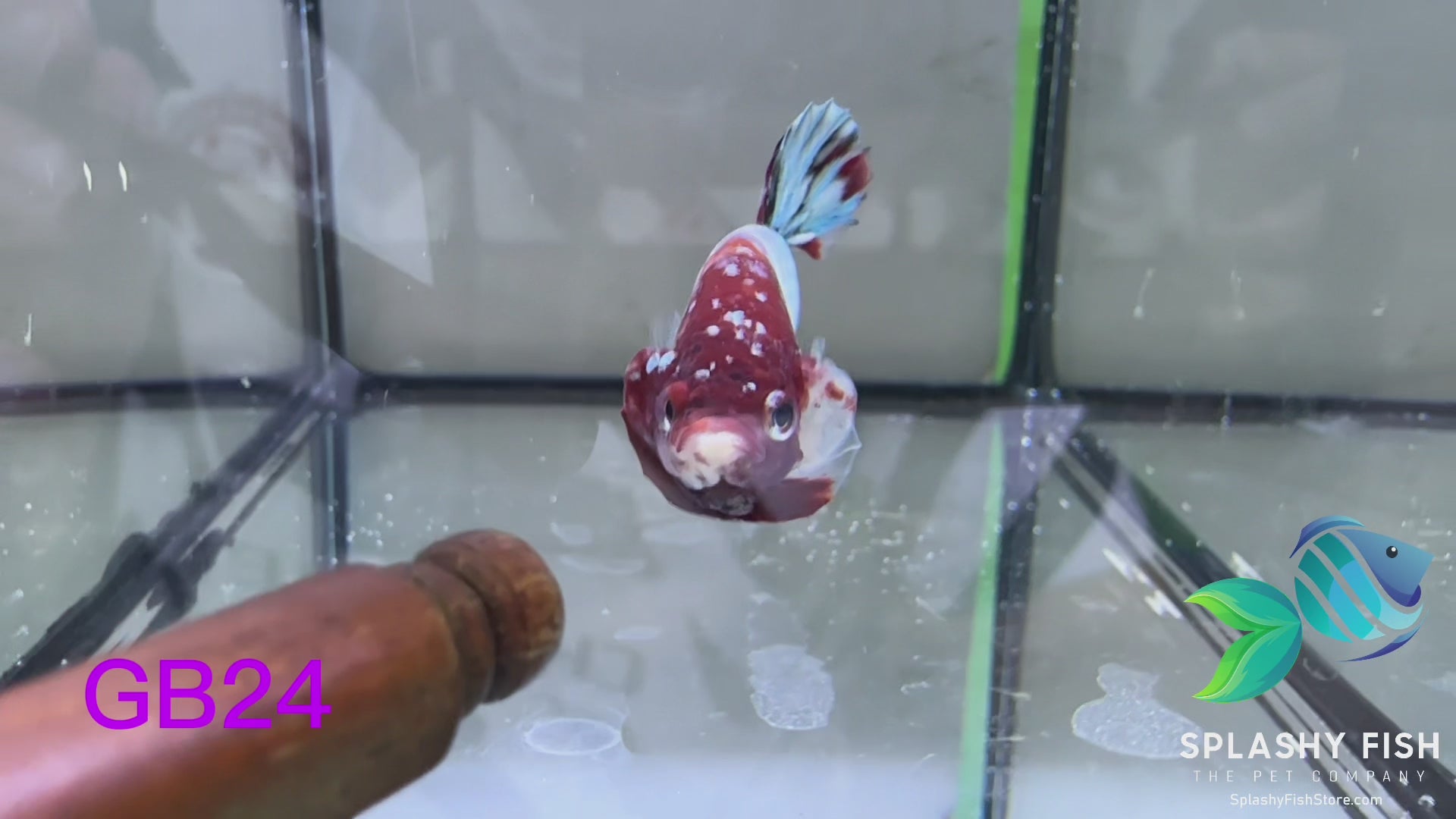
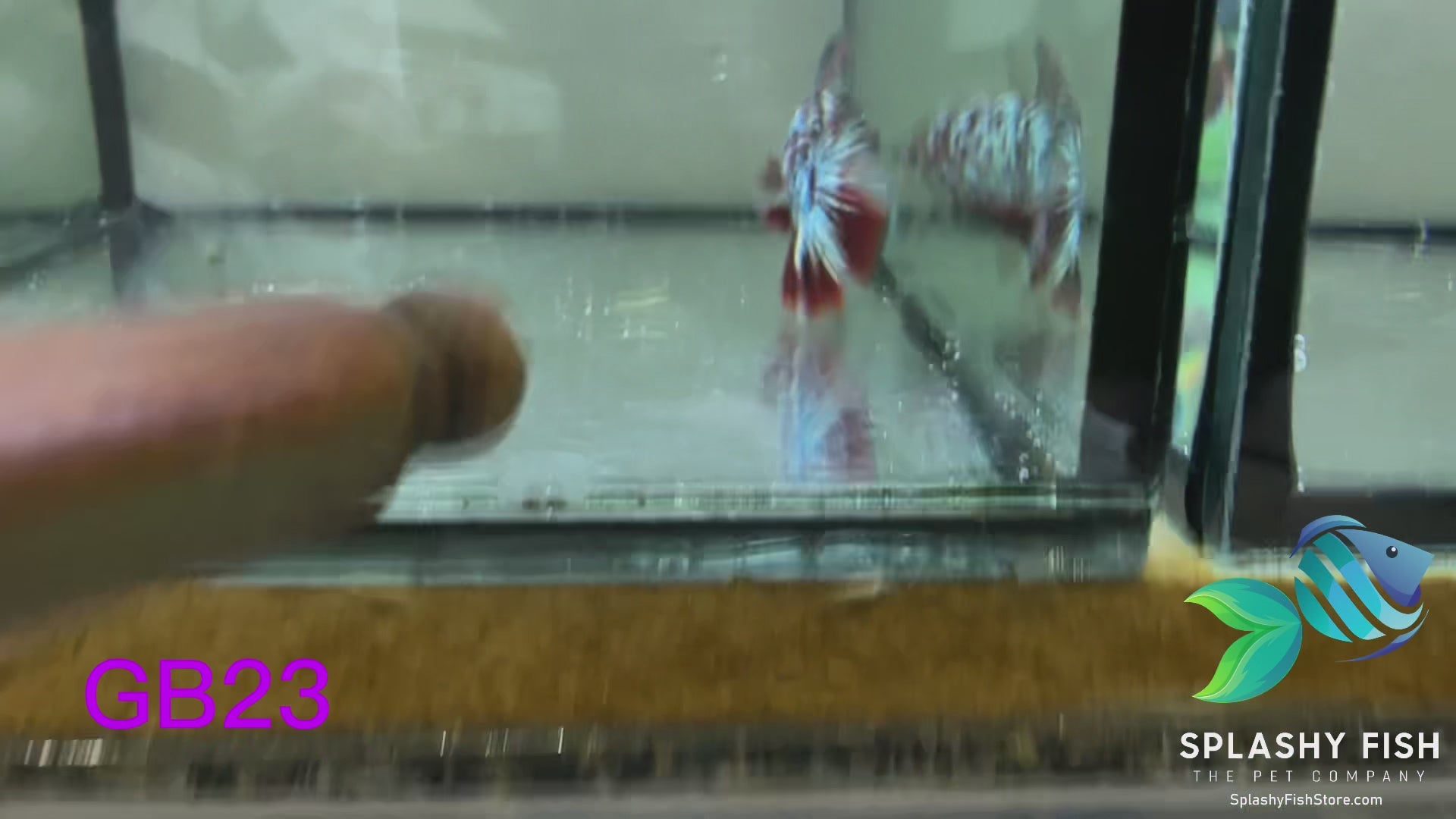
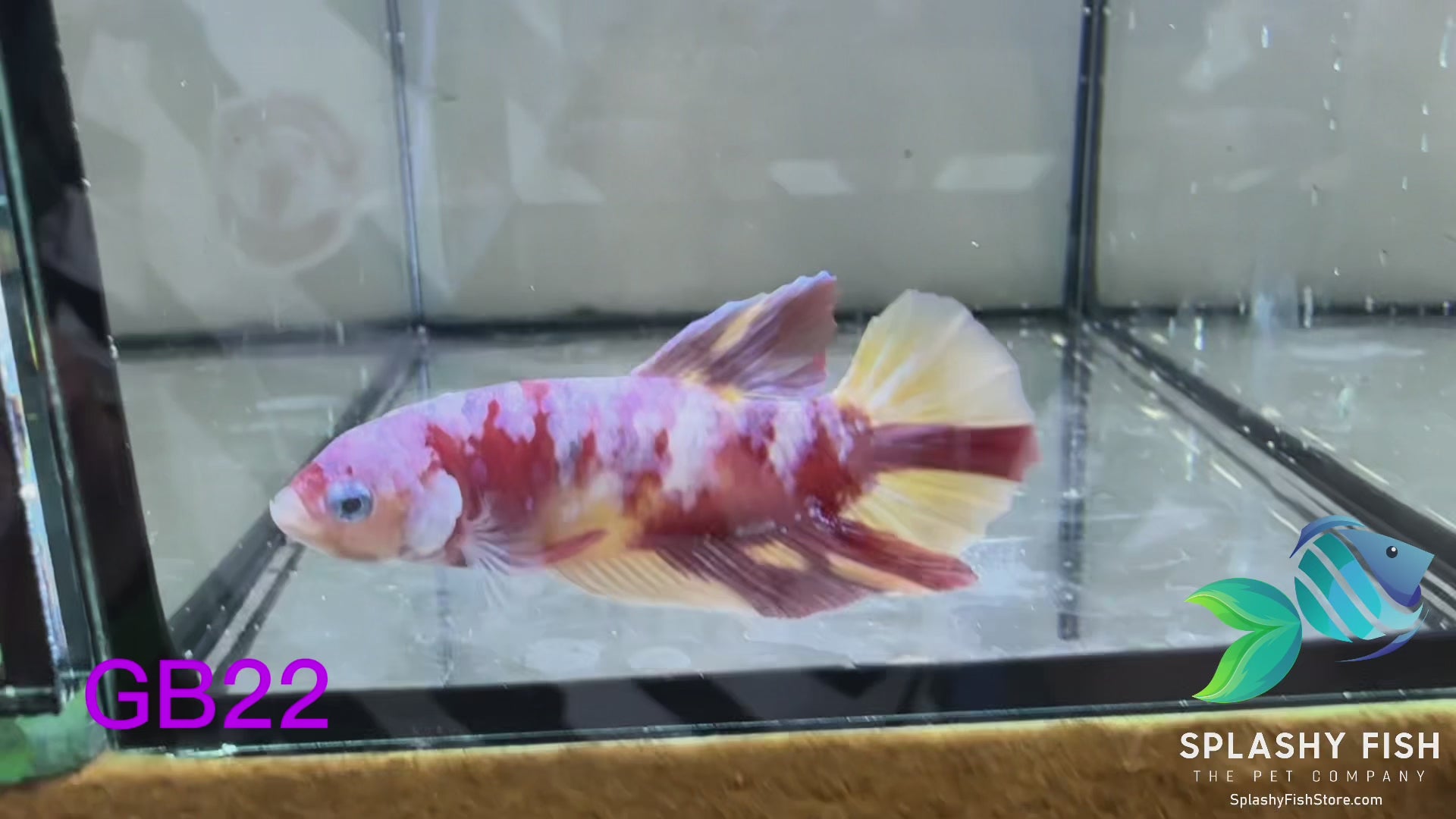
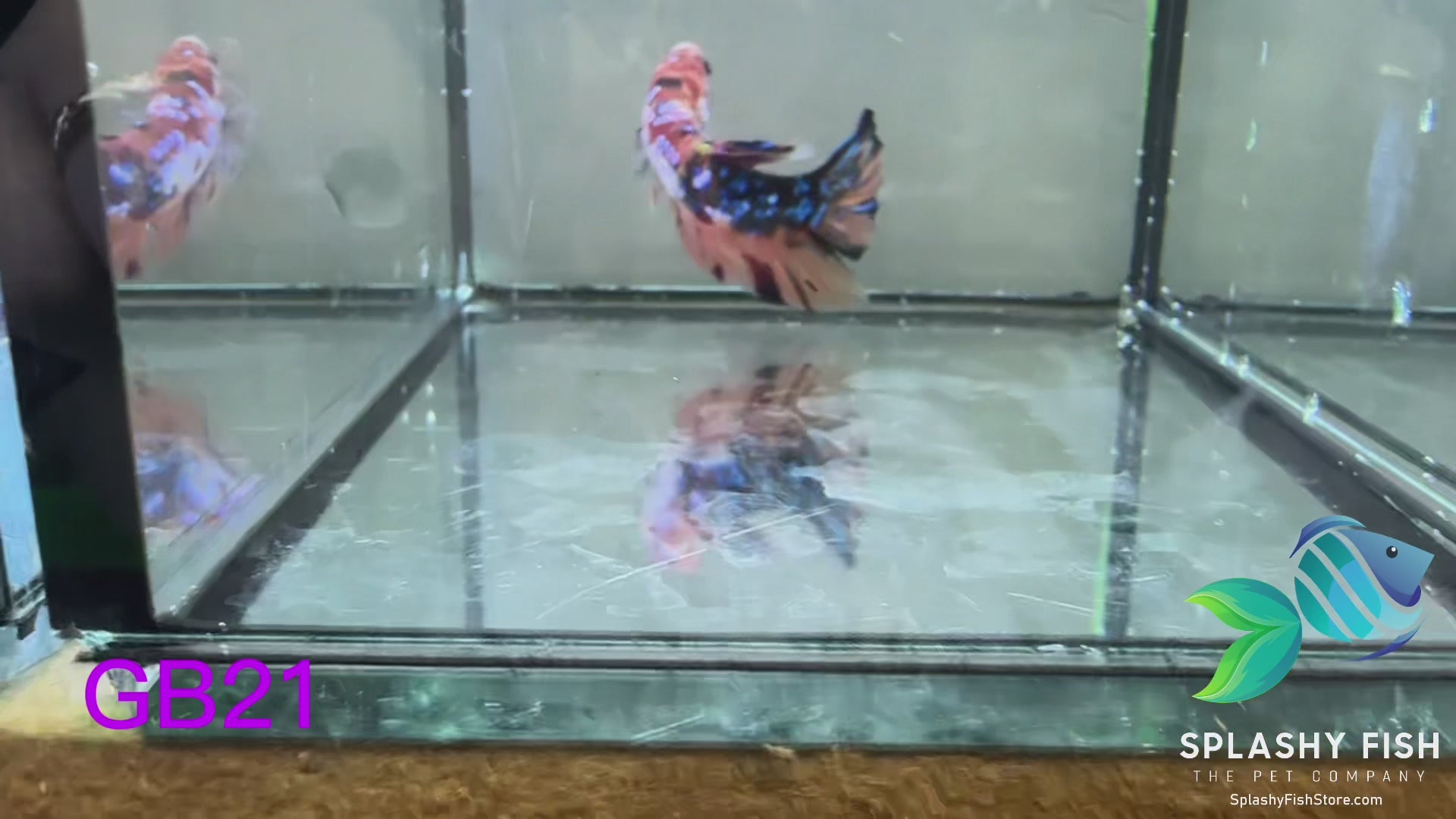
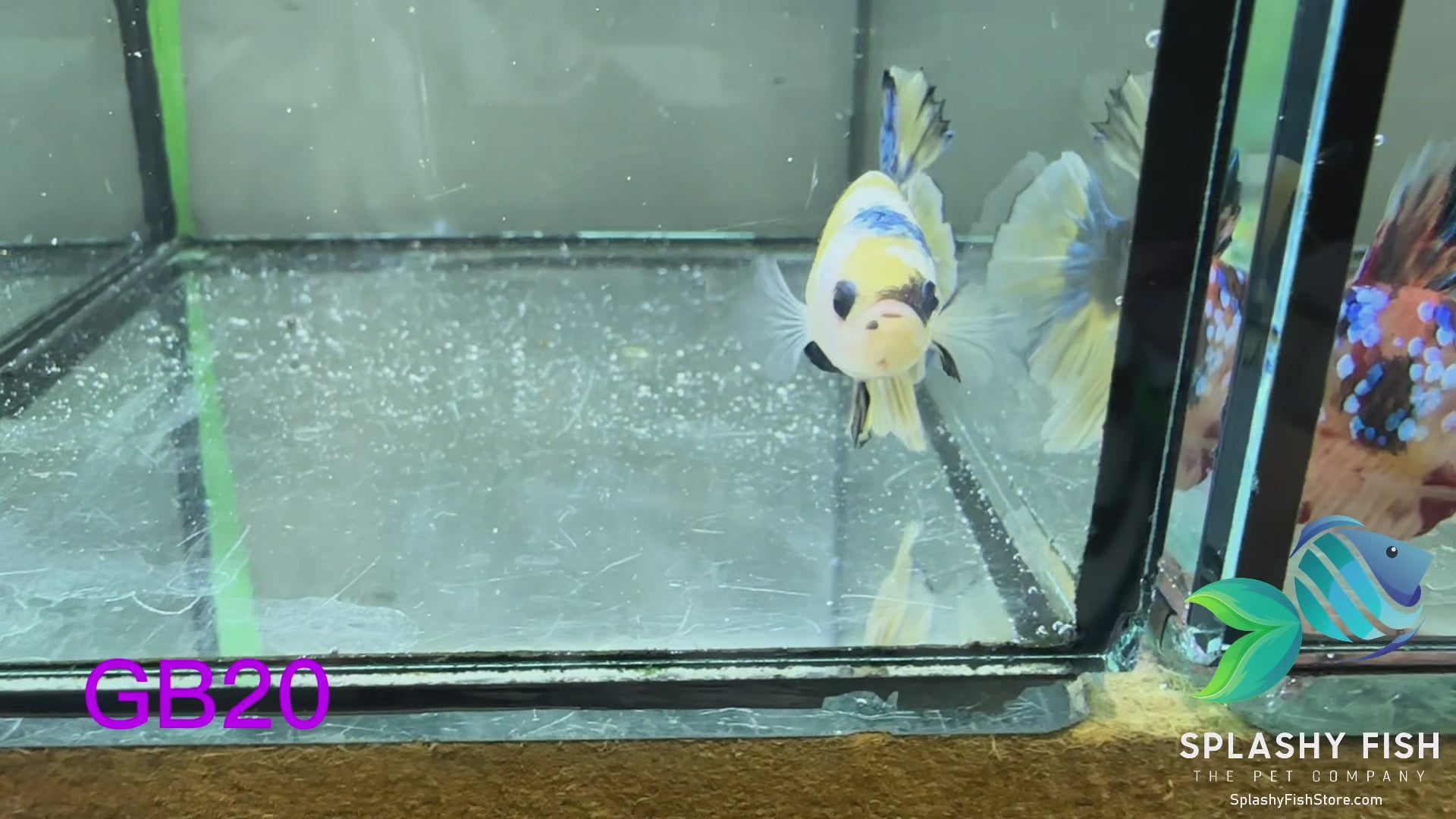
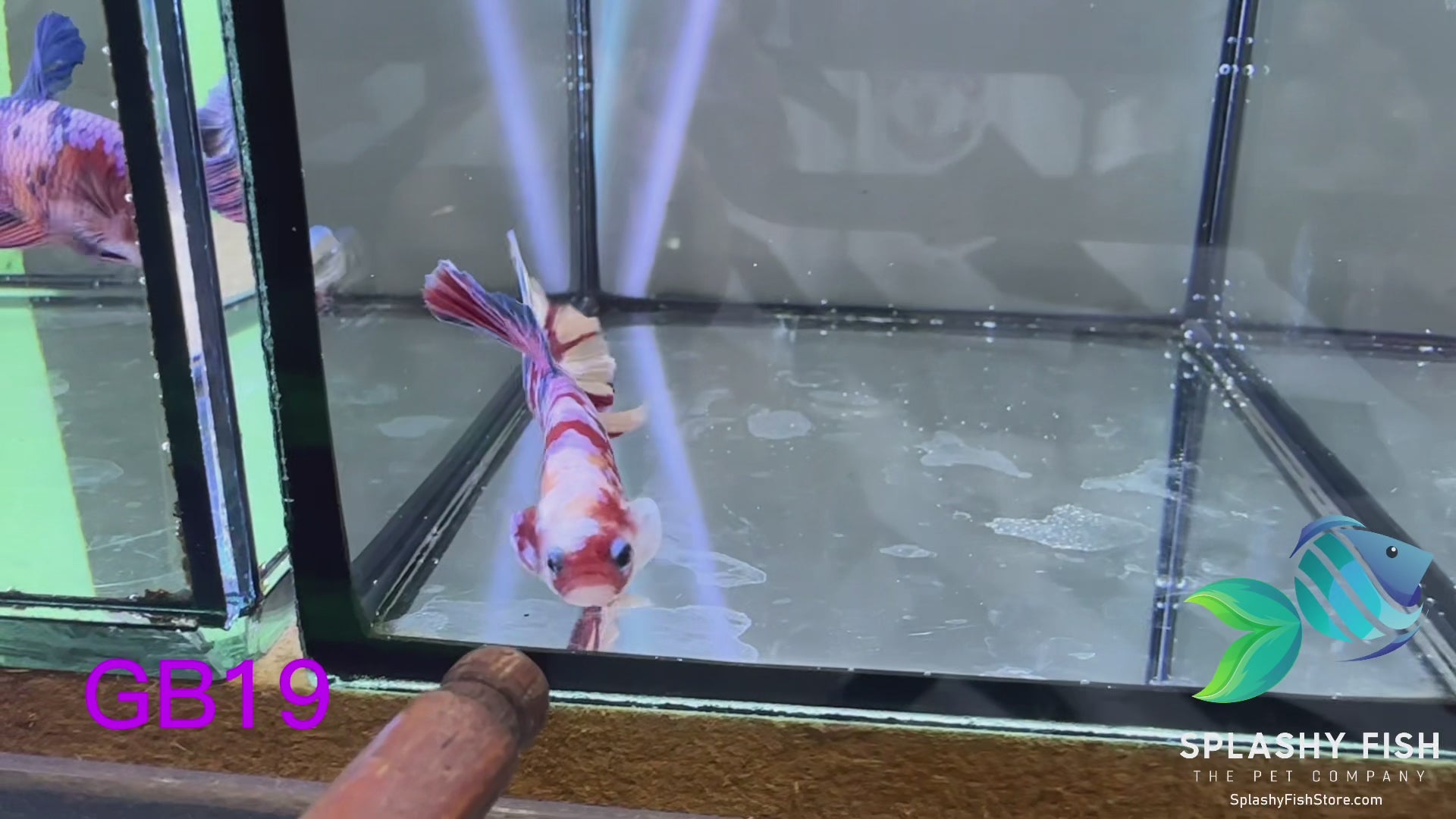
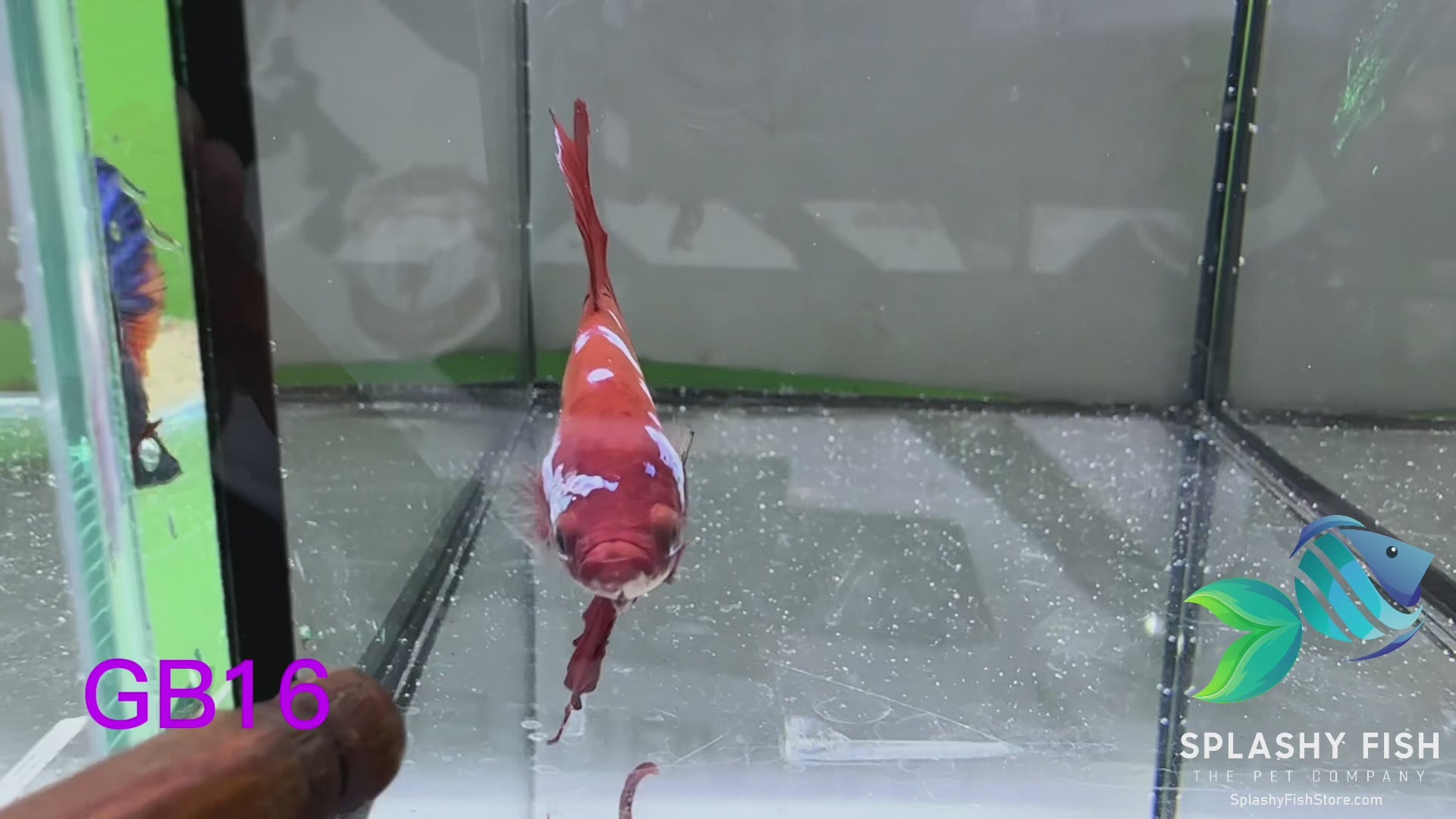
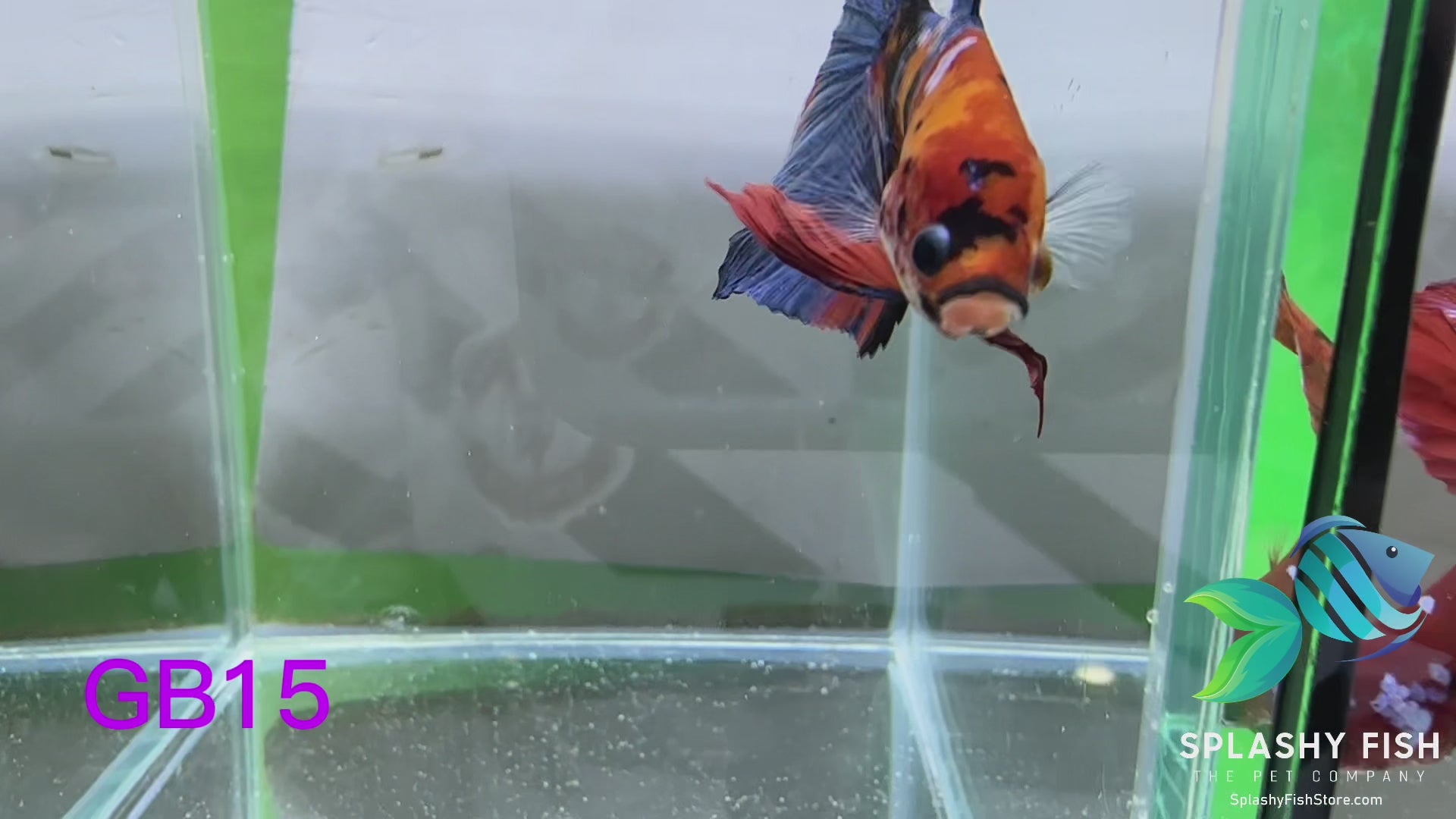
Discover the impressive and unique beauty of the Giant Betta Fish, a larger and equally stunning relative of the traditional Bettas, also known as Siamese fighting fish. With their bold colors and more robust bodies, Giant Betta Fish make an eye-catching addition to any aquarium tank. Known for their calm demeanor compared to standard Bettas, these live fish display a more relaxed temperament, making them a fantastic choice for aquarists looking to add a peaceful yet captivating fish to their collection. Available in a variety of vibrant hues, Giant Betta Fish often feature similar fin types to their smaller counterparts, including the elegant Halfmoon and Plakat variations.
WYSIWYG (What You See Is What You Get) also known as Pick Your Betta, you get to choose what betta fish you like in each listing. These Giant Betta Fish for sale in the listing are the exact ones you will be purchasing. All the betta fighting fish in this listing are handpicked and then go through 14 days of quarantine to be listed on Splashy Fish.
We take our time to record videos of each fish in this collection therefore you can confidently choose your favorite bettas from home. A Picture Paints A Thousand Words, But A Video Shows A Thousand Pictures therefore you can see more characteristics, movement, and coloration of the bettas you like. We hope that this will help you better select the right betta for your aquarium. Please make sure to click on the listing to see the fish moving and look at it closer.
At Splashy Fish, we offer premium Giant Betta fish for sale, each selected for its unique appearance and vitality. Pair your new Betta with our top-quality giant betta fish food, spacious betta fish tanks, and essential aquarium accessories to create the perfect environment. Not only that, we also offer tropical fish for sale, freshwater shrimp for sale, and aquatic plants for sale. Explore our collection today and find the ideal Giant Betta to make a striking centerpiece in your aquatic world.
Giant Betta Fish Frequently Asked Questions FAQs
Where to buy giant betta fish?
You can buy Giant Betta fish at specialized fish stores like Splashy Fish, where we offer a curated selection of high-quality Giant Bettas. Additionally, online fish stores and some local fish shops may carry them, but ensure you buy from reputable sources to get healthy and vibrant fish.
How big do giant betta fish get?
Giant Betta fish typically grow to about 3 to 4 inches in length, which is nearly double the size of a regular Betta. Some can even reach up to 5 inches, depending on their genetics and environment.
What is giant betta fish lifespan?
The average lifespan of a Giant Betta fish is around 2 to 3 years, but with proper care, a healthy environment, and a nutritious diet, some Giant Bettas can live up to 4 years.
The Ultimate Guide for Giant Betta Fish
Are you ready to dive into the world of keeping Giant Betta Fish? If you're a fish enthusiast looking to add some vibrancy and beauty to your aquarium, then you're in for a treat with our Ultimate Giant Betta Fish Care Guide. From setting up the perfect habitat to providing optimal nutrition, this comprehensive guide has everything you need to ensure the health and happiness of your aquatic beauty. At Splashy Fish, we understand the importance of proper care for your beloved fish. With our expertise in aquarium maintenance and years of experience, we've compiled the essential tips and techniques to help you thrive as a Betta Fish owner. Whether you're a beginner or a seasoned aquarist, this guide will provide valuable insights into the unique needs of Giant Betta Fish, ensuring that they receive the best care possible. Join us as we uncover the secrets to creating an ideal environment, selecting compatible tank mates, and maintaining the water quality for your betta's well-being. Get ready to embark on a fulfilling journey with your Giant Betta Fish – a beautiful and majestic creature. Let's dive in and explore the world of Betta Fish care together.
What are The Differences Between Betta Fish and Giant Betta Fish?
Understanding the key differences between regular Betta Fish and Giant Betta Fish is crucial for providing the best care. Giant bettas, also known as Betta anabatoides or Betta splendens (depending on the species), are larger and have a more docile temperament than their smaller counterparts.
Size and Appearance
Giant bettas can grow up to 3 to 4 inches in length, whereas regular bettas typically reach only 2.5 to 3 inches. This size difference requires larger tank setups and different care considerations. Giants also have broader, more robust bodies and may exhibit different color patterns.
Temperament
Giant bettas are generally less aggressive than regular bettas, making them better suited for community tanks with carefully selected tank mates. However, they can still display territorial behavior, especially during breeding.
Lifespan
With proper care, giant betta can live up to 4-5 years, sometimes even longer. Regular bettas typically have a similar lifespan, but the size and health of giants require more specific attention to detail.
Understanding the Needs of Giant Betta Fish
To keep your Giant Betta Fish healthy and happy, it’s important to understand their unique needs. Giant bettas, being larger and less aggressive, require more space, a well-balanced diet, and specific water conditions to thrive.
Habitat Requirements
Giant bettas need a minimum fish tank size of 10-20 gallons, with 20 gallons being ideal. The larger the tank, the more comfortable your fish will be. They thrive in well-planted tanks that mimic their natural habitat, with plenty of hiding spots and open swimming areas.
Water Parameters
Maintaining the correct water parameters is critical for the health of your giant betta. The water temperature should be kept between 82°F and 85°F, with a pH level of 6.5 to 7.5. Giant bettas are sensitive to poor water quality, so regular water changes (about 20-30% weekly) are essential.
Filtration and Aeration
Although bettas can breathe surface air due to their labyrinth organ, a gentle filtration system such as sponge filter is still important to maintain water quality. Avoid strong currents, as giant bettas prefer calm waters.
Setting up the Perfect Aquarium for Your Giant Betta Fish
So, you're ready to welcome a Giant Betta Fish into your home? Great choice! These magnificent creatures are not only stunning but also have a lot of personality. However, to ensure they thrive, you’ll need to set up the perfect betta tank. Here’s everything you need to know to get started:
Tank Size
Imagine living in a small box—sounds uncomfortable, right? Your giant betta feels the same way. Aim for a tank that's at least 10-20 gallons, but bigger is always better. This gives your giant betta plenty of space to swim and explore, which is essential for their well-being.
Filter
Giant bettas, like all fish, prefer clean water. A good aquarium filter is a must to keep the water clean and clear. It’s a worthy investment since it reduces the frequency of manual cleaning and keeps your fish healthy.
Heater
Being tropical fish, giant bettas need warm water to thrive. An aquarium heater is essential to maintain a temperature between 76-82 degrees Fahrenheit. This ensures your giant betta stays comfortable, just like on a perfect summer day.
Substrate
The tank floor needs to be covered with a substrate like smooth gravel, aquarium soil, or sand. Avoid anything too rough or sharp that could damage your betta's delicate fins. A soft, fine-grained substrate is ideal.
Decorations
Giant bettas love exploring their environment, so adding aquarium decorations is a great idea. Consider live plants, aquarium rocks, and driftwood. Just make sure there are no sharp edges that could harm your betta. These decorations also provide hiding spots, which help reduce stress.
Water Quality
Maintaining clean and clear water is crucial for your giant betta’s health. Regular water changes are key—about 25-30% every week should do the trick. This helps keep toxins at bay and ensures your betta has the best environment to live in.
Food
Giant bettas are carnivorous, so their diet should consist of meaty foods. Offer them high-quality pellets, flakes, or live food like brine shrimp and bloodworms. Just remember, overfeeding can lead to obesity, so feed them in moderation.
Tank Mates
While giant bettas are generally more docile than regular bettas, they can still be territorial. If you’re considering tank mates, choose peaceful species like small tetras, aquarium snails, or freshwater shrimp. Always monitor interactions closely to ensure harmony in the tank.
Feeding and Nutrition for Giant Betta Fish
Proper nutrition is key to maintaining the health and vibrancy of your Giant Betta Fish. These freshwater fish require a balanced diet rich in protein to support their larger size and energy needs.
Types of Food
Giant bettas should be fed a varied diet that includes high-quality betta pellets, and frozen or live foods like brine shrimp, bloodworms, and daphnia. Avoid overfeeding, as bettas are prone to obesity and related health issues.
Feeding Schedule
Feed your giant betta 1-2 times a day, offering only as much fish food as they can consume within 2-3 minutes. Overfeeding can lead to poor water quality and health problems.
Supplementing with Live Foods
Live foods can be an excellent source of nutrition and mental stimulation for your giant betta. Consider adding live foods to their diet once or twice a week.
Maintaining Water Quality for Healthy Giant Betta Fish
Regular Water Changes
Performing regular water changes is essential to maintaining good water quality. Aim to change 20-30% of the water weekly. This helps remove toxins like ammonia and nitrates that can build up over time.
Testing Water Parameters
Use a reliable water test kit to monitor ammonia, nitrite, nitrate, and pH levels. Ammonia and nitrite should always be at 0 ppm, while nitrates should be kept below 20 ppm.
Using Water Conditioners
Always use a water conditioner when adding new water to your tank. This will neutralize harmful chemicals like chlorine and chloramine, making the water safe for your betta.
Giant Betta Fish Tank Mates and Compatibility
One of the advantages of giant bettas is their more docile nature, which allows for a wider range of compatible tank mates compared to regular bettas. However, careful selection is still necessary.
Compatible Tank Mates
Choose peaceful, non-aggressive types of freshwater fish that won't nip at your betta’s fins. Good options include:
Corydoras catfish
These peaceful bottom-dwellers are ideal because they occupy a different area of the tank than the betta. These cory catfish are hardy, easy to care for, and unlikely to provoke your giant betta.
Small Tetras
Small, fast-moving Tetra species like Cardinal Tetra or Rummy Nose Tetra make good companions for giant bettas. They usually swim in the middle or upper parts of the tank, away from the betta’s territory.
Freshwater Snails
Freshwater snails, such as Nerite Snails or Mystery Snails, are excellent tank mates. They help keep the tank clean by eating algae and leftover food and are generally ignored by giant bettas.
Freshwater Shrimps
Freshwater shrimp like Red Cherry Shrimp or Amano Shrimp can coexist with giant bettas if there are plenty of hiding places. However, be cautious, as some bettas may view shrimp as a snack.
Tank Mates to Avoid
Avoid keeping giant bettas with other Bettas, fin-nipping species like Barbs, or larger, aggressive fish. These combinations can lead to stress, injury, or even death.
Common Health Issues and How to Prevent Them
Giant bettas are generally hardy fish, but they can still be susceptible to various health issues if not properly cared for. Here are some common problems and how to prevent them:
Fin Rot
Caused by poor water quality, fin rot is characterized by the deterioration of the fins. To prevent fin rot, maintain clean water and avoid sharp decorations that could tear the fins.
Ich (White Spot Disease)
Ich is a parasitic infection that appears as white spots on the fish’s body and fins. It’s often caused by stress or sudden changes in water temperature. Quarantine new fish before adding them to the tank and treat the water if you notice signs of ich.
Swim Bladder Disorder
This condition affects the fish’s buoyancy and can be caused by overfeeding or constipation. To prevent swim bladder disorder, feed your betta a balanced diet and avoid overfeeding.
Breeding and Reproduction of Giant Betta Fish
Breeding giant bettas can be a rewarding experience, but it requires careful planning and preparation. Here’s what you need to know:
Selecting Breeding Pairs
Choose healthy, vibrant fish with no visible signs of disease. The male and female should be of similar size to prevent injury during mating.
Setting Up a Breeding Tank
A separate breeding tank is essential to control the environment and protect the fry (baby fish). The tank should be at least 10 gallons and filled with warm water (around 80°F). Provide plenty of hiding spots and floating plants for the female to retreat to after spawning.
The Breeding Process
Males will build a bubble nest at the water's surface. Once the female is introduced, the male will wrap around her and fertilize the eggs as she releases them. After spawning, remove the female to prevent her from being attacked by the male.
Caring for Fry
Once the fry hatch, they will feed on their yolk sacs for the first few days. After that, start feeding them with infusoria or specially formulated fry food. Gradually introduce them to larger foods as they grow.
Tips for Keeping Your Giant Betta Fish Happy and Stress-free
Ensuring that your Giant Betta Fish is happy and stress-free is key to their overall health and well-being. Here are some tips:
Provide a Stimulating Environment
Giant bettas are intelligent and curious fish. Enrich their environment with aquarium plants, hiding spots, and occasional changes to their tank layout to keep them mentally stimulated.
Regular Interaction
Spend time interacting with your betta by feeding them and watching their behavior. Bettas can recognize their owners and often respond to regular interaction. This engagement can help reduce stress and strengthen the bond between you and your fish.
Avoid Overcrowding
Overcrowding a tank can lead to stress and poor water quality, which in turn can cause health problems. Ensure that your tank is spacious enough for your giant betta and its tank mates to coexist peacefully.
Minimize Noise and Vibrations
Loud noises and constant vibrations can stress your giant betta. Place the aquarium tank in a quiet area of your home, away from high-traffic zones and sources of loud noise.
Giant Betta Fish Myths and Misconceptions
There are several myths and misconceptions about Giant Betta Fish that can lead to improper care. Let’s debunk a few:
Myth 1: Giant Bettas Can Live in Small Bowls
While it’s true that bettas can survive in small containers for short periods, this is not suitable for their long-term health. Giant bettas require a spacious tank with proper filtration and regular maintenance to thrive.
Myth 2: Bettas Don't Need Heaters
Bettas, including giant bettas, are tropical fish that need warm water to stay healthy. A heater is essential in maintaining a stable and appropriate temperature in their tank.
Myth 3: Bettas Can Survive Without Food for Weeks
While bettas can survive without betta fish food for short periods, it’s not advisable to leave them without food for more than a few days. Regular feeding is crucial for their health and well-being.
Myth 4: Giant Bettas Can Live in the Same Conditions as Regular Bettas
Due to their larger size, giant bettas often require more space and slightly different care compared to regular bettas. A tank that might be suitable for a regular betta may feel cramped for a giant betta.
Myth 5: Giant Bettas Don’t Need a Varied Diet
Some believe that feeding bettas the same type of fish food every day is sufficient. However, a varied diet is crucial for their health, providing the necessary nutrients they need to grow and maintain vibrant colors.
Conclusion: Enjoying the Beauty and Majesty of Giant Betta Fish
Giant Betta Fish is truly a majestic addition to any aquarium, offering both beauty and personality. By following the guidelines outlined in this comprehensive care guide, you’ll ensure that your giant betta lives a long, healthy, and happy life.
From setting up the perfect tank environment to understanding their unique dietary needs and preventing common health issues, this guide has provided you with the knowledge needed to excel as a Giant Betta Fish owner. Remember, the key to successful fishkeeping is a commitment to regular care and a willingness to learn and adapt as you gain more experience.
At Splashy Fish, we are dedicated to helping you succeed in your fish-keeping journey. Be sure to explore our website for all the products and resources you need to care for your aquatic friends. From giant betta fish for sale and other freshwater fish for sale to high-quality fish food and reliable aquarium supplies, we’ve got you covered.
Discover the Grades:
-
Collector Grade Betta Fish: These fish embody the epitome of our collection, showcasing impeccable finnage, vivid coloration, and flawless form. Through a meticulous selection process, we handpick approximately 1 out of every 5,000 betta fish to attain this exceptional grade that meet Splashy Fish's exacting standards. This is the most expensive betta fish grade that we have that is consider rare bettas for sale.
-
Deluxe Grade Betta Fish: Exemplary specimens with distinctive characteristics, ideally suited for individuals seeking an extraordinary addition to their aquarium. At Splashy Fish aquarium store, we meticulously hand-select each betta fish, adhering to stringent criteria to guarantee the fish's body, colors, shape, and fins are aesthetically pleasing and in optimal health. Typically, from a batch of 300 baby betta fish, only approximately 1 to 5 meet Splashy Fish's exacting standards.
-
Premium Grade Betta Fish: Healthy and active Bettas with beautiful colors and unique patterns, perfect for any hobbyist. Typically, a cohort of 300 juvenile Betta fish will yield approximately 12 to 10 specimen that adhere to Splashy Fish's stringent criteria for Premium Grade.
- B Grade Betta Fish: Behold the extraordinary beauty of this magnificent Betta fish! As one of the top 20% of Betta fish, its vibrant colors and elegant fins will captivate your senses. Unlike the ordinary Betta fish found at this price in betta Petco, this exceptional specimen is a rare and highly sought-after prize. Elevate your freshwater aquarium with this extraordinary Betta fish, and experience the joy of owning a truly unique and mesmerizing aquatic masterpiece.
Explore the Varieties:
-
Koi Galaxy: These mesmerizing betta koi fish boast captivating Galaxy patterns reminiscent of a starry night sky.
-
Koi Nemo Galaxy: A stunning combination of betta Koi patterns and vibrant Galaxy coloration, creating an eye-catching spectacle.
-
Dumbo Betta: The signature oversized pectoral fins give these Bettas their endearing Dumbo-like appearance.
-
Giant Betta Fish: also known as the King Betta Fish, is a large and captivating species of betta fish known for its magnificent size and striking appearance. They are one of biggest giant betta for sale which can grow up to 3 inch in size
-
Halfmoon Betta Fish: Elegant Bettas with caudal fins that extend 180 degrees, creating a graceful half-moon shape.
-
Halfmoon Plakat Betta Fish: A captivating combination of the Halfmoon tail type with the shorter fins of a Plakat Betta.
-
Crowntail Betta Fish: These Bettas boast unique, spiky fin rays that resemble a crown, adding a touch of regality.
-
WYSIWYG Betta Fish: What You See Is What You Get – At splashy fish, we've taken the time to record individual videos of our beautiful bettas. This way, you can choose the exact fish you want, just like if you were buying it in a store. No more surprises when you get your new betta home!
Explore Betta Sex:
- Male betta fish: also known as Siamese fighting fish, captivate hobbyists with their vibrant colors, flowing fins, and unique personalities. Originally found in the rice paddies and slow-moving waters of Thailand, these small but feisty fish have become popular freshwater aquarium pets due to their beauty and hardiness. Male beta fish are known for their territorial behavior and often engage in elaborate displays to assert dominance. Their iridescent scales shimmer in the light, showcasing a spectrum of colors ranging from deep blues, greens, and reds to metallic hues. Their long, flowing fins add an elegant touch to their overall appearance. While male bettas can be aggressive towards other males, they can thrive in a community aquarium if provided with sufficient space and hiding places. Their intelligence makes them interactive pets, and they often recognize their owners and respond to their presence.:
- Female betta fish: known for their less vibrant colors, are a captivating addition to any aquarium. While often overshadowed by their male counterparts, female bettas have their own unique charm and personality. They are typically less aggressive than males and can be kept together in groups, creating a harmonious and visually stunning betta sorority tank. Female bettas come in a wide range of colors and patterns, making it easy to find one that fits your personal style. This aquarium fish are also relatively easy to care for, making them an excellent choice for beginner and experienced aquarists alike.


